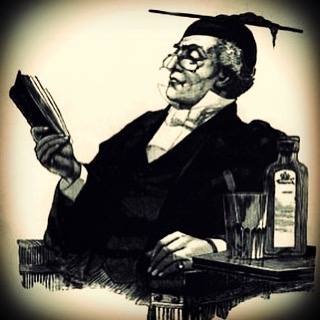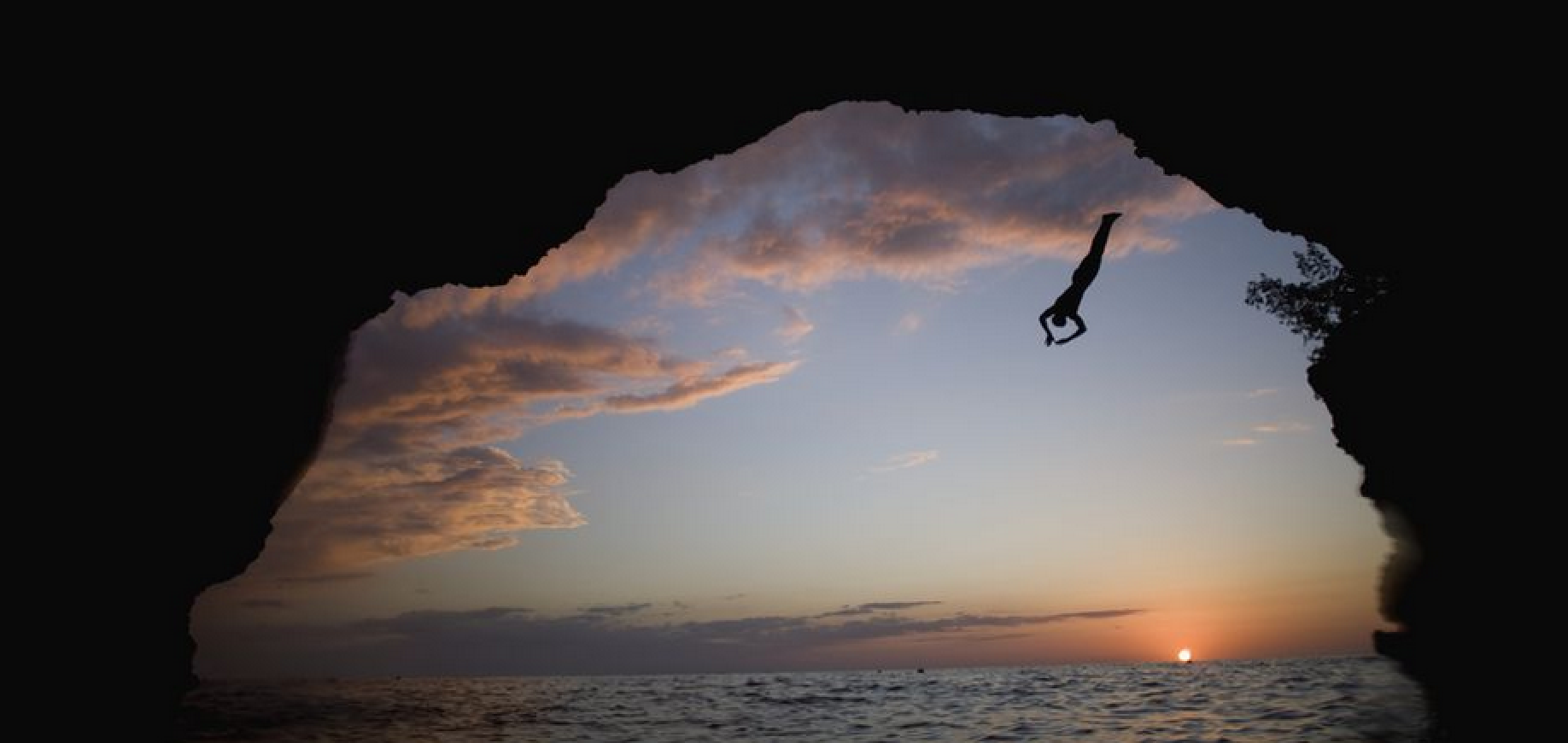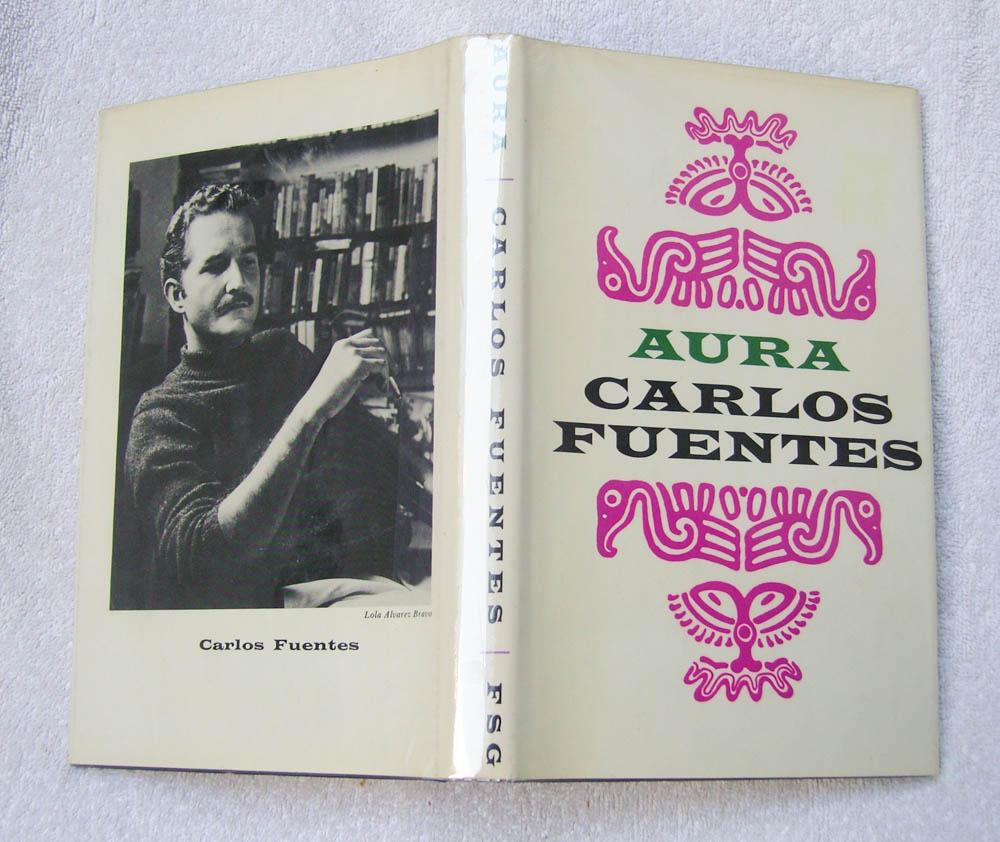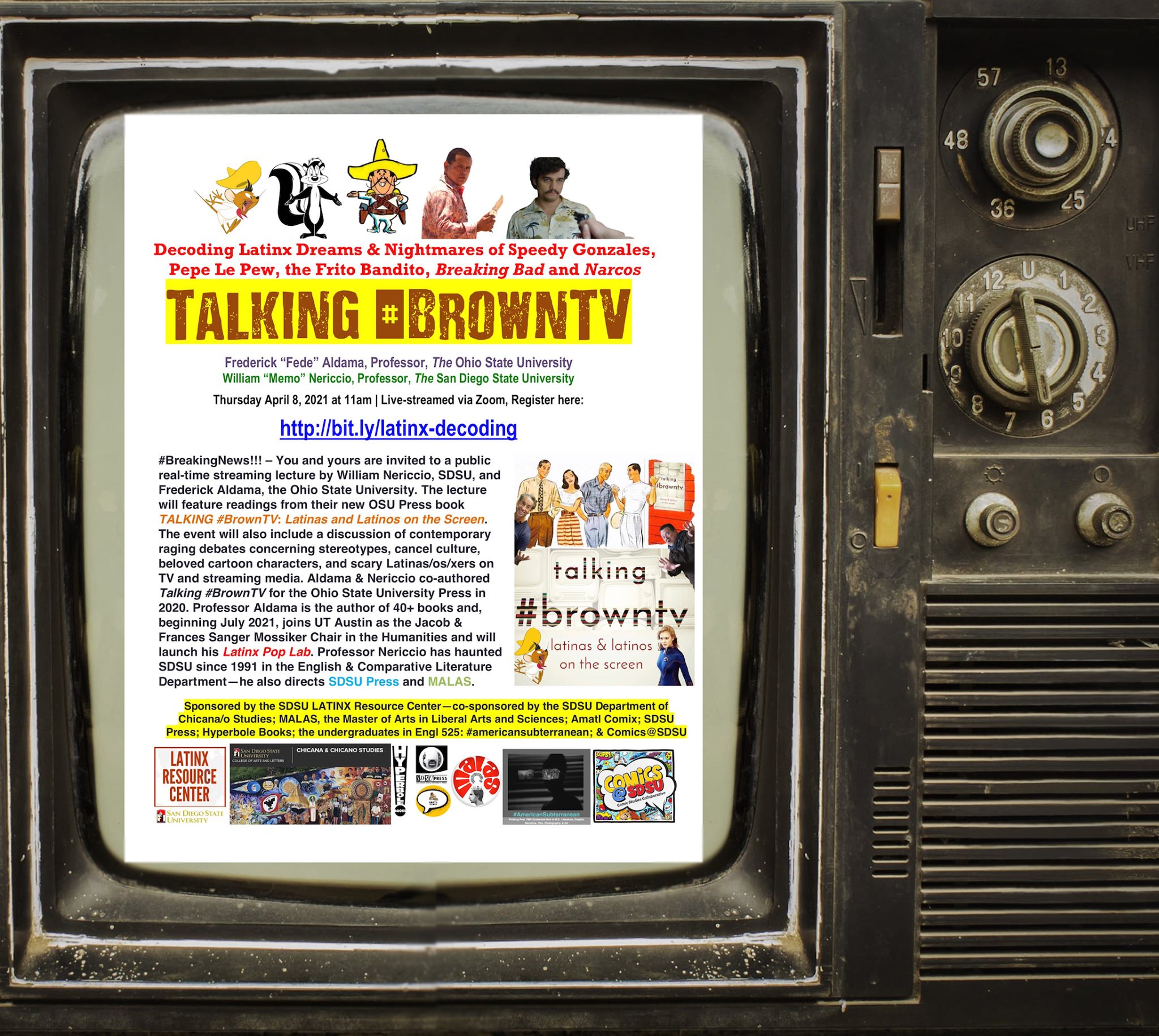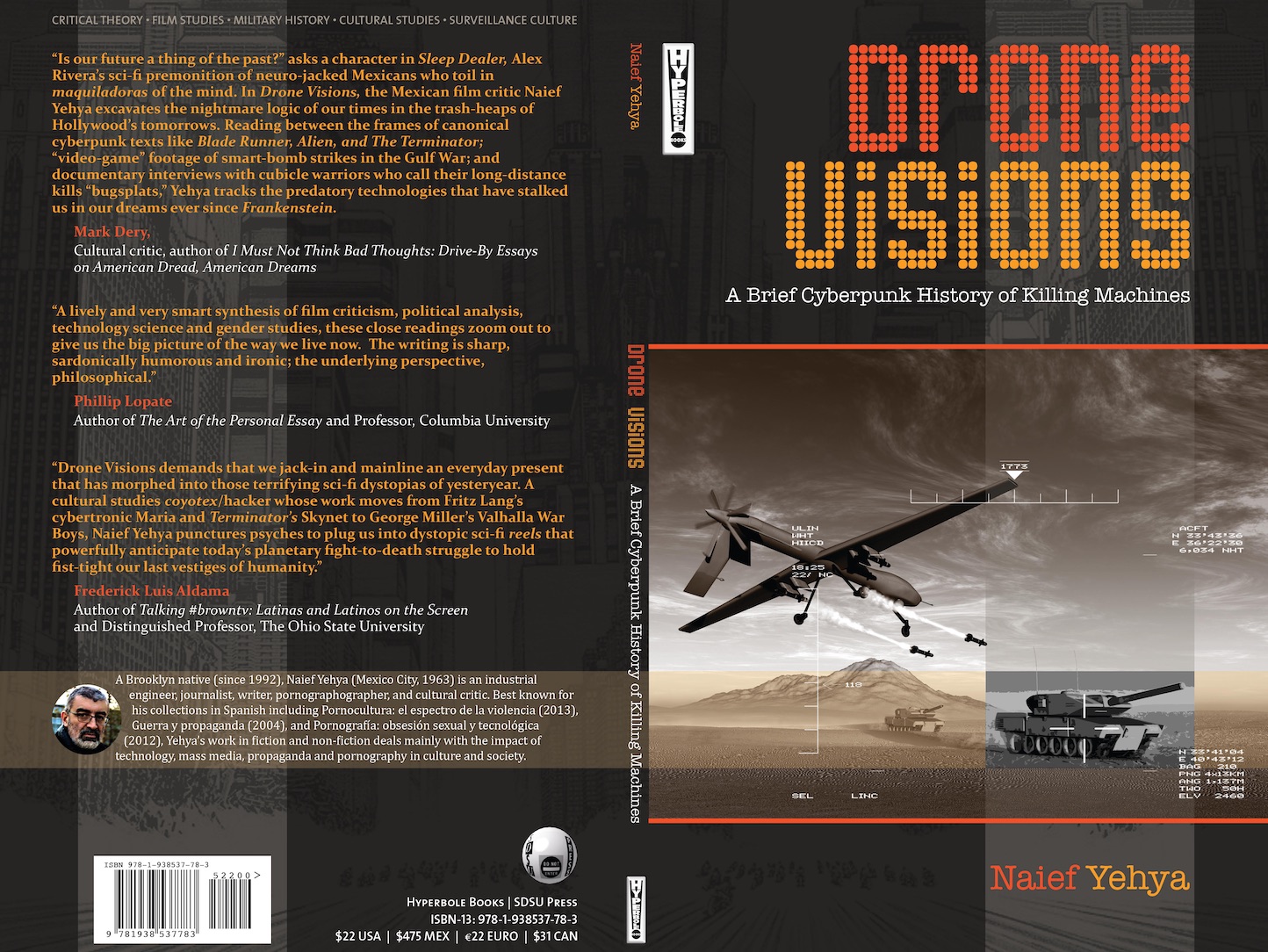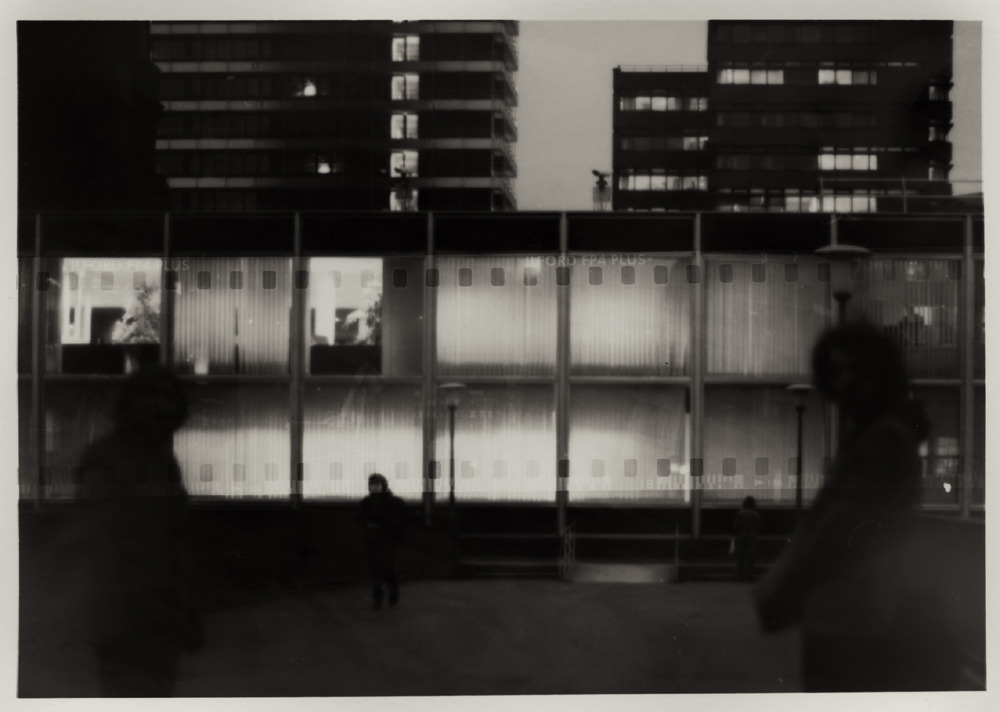|
ENGL-525.01 SCHED#: 21391 LIT OF THE US 1960-PRESNT | 1100-1215 TTH W. NERICCIO
Probing Post-1960 Existential Noir in U.S. Literature, Graphic Narrative, Film, Photography, & Art |
||||||||||||||||||||
|
||||||||||||||||||||
|
There
are any number of ways of understanding our
adventure together this semester, our examination
of something I am calling the
#american subterranean. And while Freud's
passage above partially outlines
the essence of our mission, it does not
utterly contain or complete it. What we
will find together, here at the outset, is unknowable and, ultimately, will be
determined by what YOU bring
to the table in our weekly
Zoom-based adventures.
Inspired by these ideas and others,
our class will walk together into what I am calling
the “American Subterranean,” a haunting, sensual,
disturbing, evocative world of mirrors, books, movies,
photography, art and cinema, focused on the
underworld, the unconscious, and more.
In the recent Netflix series Stranger
Things, young Americans are harassed by
creatures from a place called “the upside down”—this
dangerous dark underworld evolves into a dominating
figure or organizational symbol for the series (and
maybe for our era). All of our adventures this semester
will fall into this seamy dark noir category. The final lineup of
writers/works is still under construction, but the
final roster will likely include novels by Carlos
Fuentes, Thomas Pynchon, and Rosina Conde; movies by
Orson Welles and Spike Lee, photography by Francesca
Woodman and Diane Arbus, and much more to come. The class is designed for English
undergraduates and graduate students, but open to all
majors and minors with no expertise in literature,
art, etc. expected or preferred. |
||||||||||||||||||||
 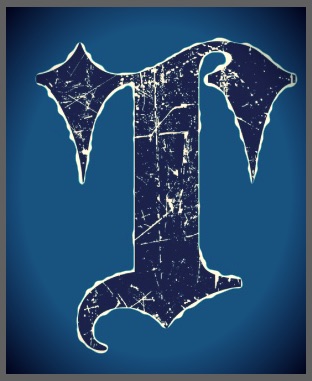 his is a university-level course in comics, literature, film, art, and the internet--as it is thematically focused on issues of representation, subjectivity, psychology, and sexuality, it should not come as a shock that students in the class may, from time to time, encounter characters, ideas, situations, images, language, and scenarios that make them uneasy. WELCOME TO THE UNIVERSITY! The antithesis of a place of worship, the flipside of a space dedicated to faith and belief, the university is a site of questioning--a sacred space of critical thinking, skepticism, cynicism and irony. So open your eyes, jump-start your mind, and prepare to enter the choppy corridors of the always already evolving world of comics and history. 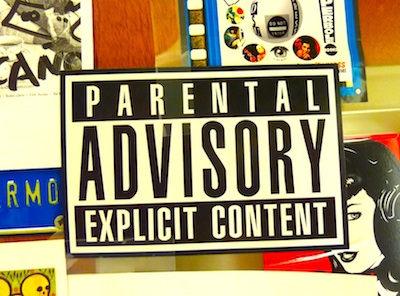 |
||||||||||||||||||||
| Required Books and Cinema The best place to get books is where they are cheapest; some of the books have special deals associated with them if you get them through Aztec Shops Campus Bookstore--their book portal is here. 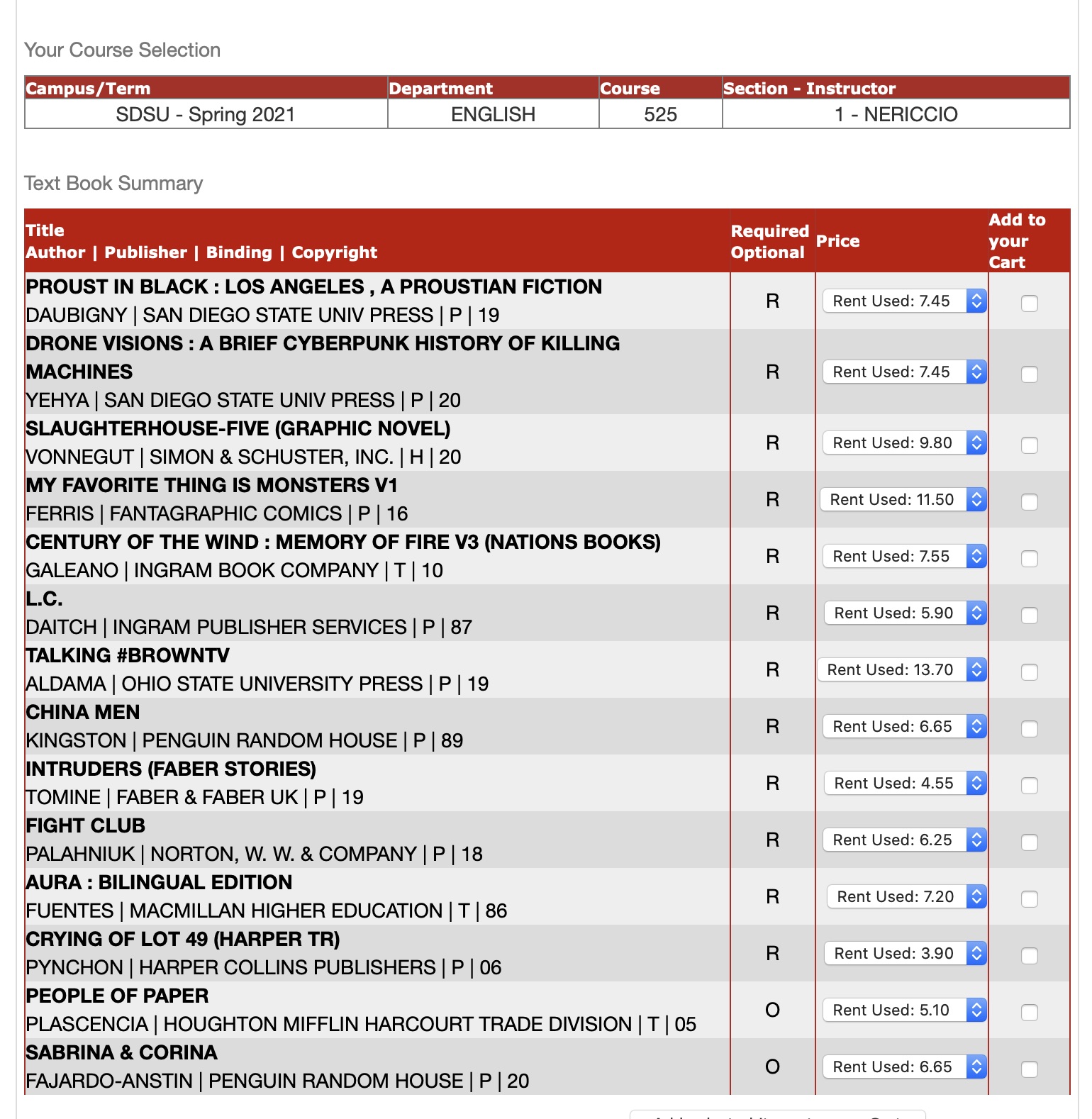 Click each cover below to see the proper edition of all the books we are studying together this semester! Should you buy print editions or digital editions? What about pirated pdfs? You are welcome to pursue what you see fit, but, despite the expense, nothing beats working with the best, printed edition of the book. Should you rent or buy? That is up to you! But remember, your bookshelf is like a mirror of the journey of your psyche -- a snapshot of the evolution of your imaginations. An empty bookshelf = an erased intellectual legacy/heritage.
|
||||||||||||||||||||
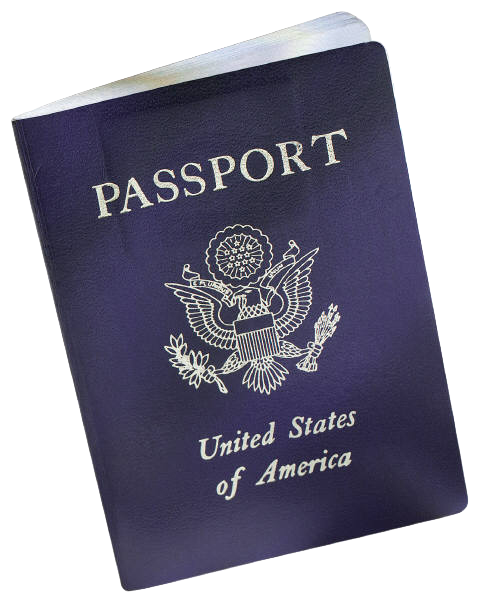 Spring 2021 Spring 2021PASSPORT ENGL 525: #americansubterranean A Description of How Your Work Will Be Evaluated
William A. Nericcio | memo@sdsu.edu  his section of your
subterranean syllabus documents how your work will
be evaluated this Spring 2021 semester. Here you
will find all the bureaucratic gates, cages, and
locks -- all the meager statutes, ordinances,
edicts, and formulas -- that will allow our
zoom-based (thx Covid_19!) American
Literature-focused literary collective to thrive.
Let me underscore that you have absolute
intellectual freedom in our seminar, BUT to
receive these awesome rights, you must also follow
the reasonable responsibilities outlined on this
page. After all, we want to have a great time, be
the best literature/film studies class on the
West Coast even (take that USC! Eat my dust Stanford!)
But to do that, we need room for intellectual
play--a safe subterranean asylum that will allow
us to complete our semester-long project. his section of your
subterranean syllabus documents how your work will
be evaluated this Spring 2021 semester. Here you
will find all the bureaucratic gates, cages, and
locks -- all the meager statutes, ordinances,
edicts, and formulas -- that will allow our
zoom-based (thx Covid_19!) American
Literature-focused literary collective to thrive.
Let me underscore that you have absolute
intellectual freedom in our seminar, BUT to
receive these awesome rights, you must also follow
the reasonable responsibilities outlined on this
page. After all, we want to have a great time, be
the best literature/film studies class on the
West Coast even (take that USC! Eat my dust Stanford!)
But to do that, we need room for intellectual
play--a safe subterranean asylum that will allow
us to complete our semester-long project.
BUY THE BOOKS AND READ THEM--DON'T LOG
ONTO ZOOM WITHOUT HAVING READ YOUR BOOK! Though we very much adore
living in the 21st century, I am asking you to
use ANALOG, printed, old school, old gangster
paper books in this class. Of course, if you prefer kindle, noom,
etc, there is nothing I can do about it. My
main concern is that when I do a page call-out
during lecture, you will not know where in the book
I am doing a close reading. Why
is that important? Because
I want YOU to be in a critical position to question
my close readings or to augment and adjust them with
your own interpretations and suggestions.
So the way it works is that when you log-onto Zoom for
our synchronous class sessions, you will have
completed the reading that appears on your the
day-to-day class calendar! Please note the
word "finished" (not "started," not "skimmed," not
"glanced," and most decidedly NOT "but I read the
Cliffs/Sparks Notes!) Coming to a
university literature / film / cultural studies class
without doing the reading is like a gardener trying to
raise roses without getting her/his hands filthy, a
surgeon trying to operate without a scalpel, a fireman
without an axe ... Do the readings.
Do them twice if you can MAKE the time! The quality of
our class depends upon your dedicated work and your
relentless and independent curiosity. Without your
periodic intellectual donations, the class is likely
to evolve into a boring, even painful waste of
time. PASSPORT
RULE 2
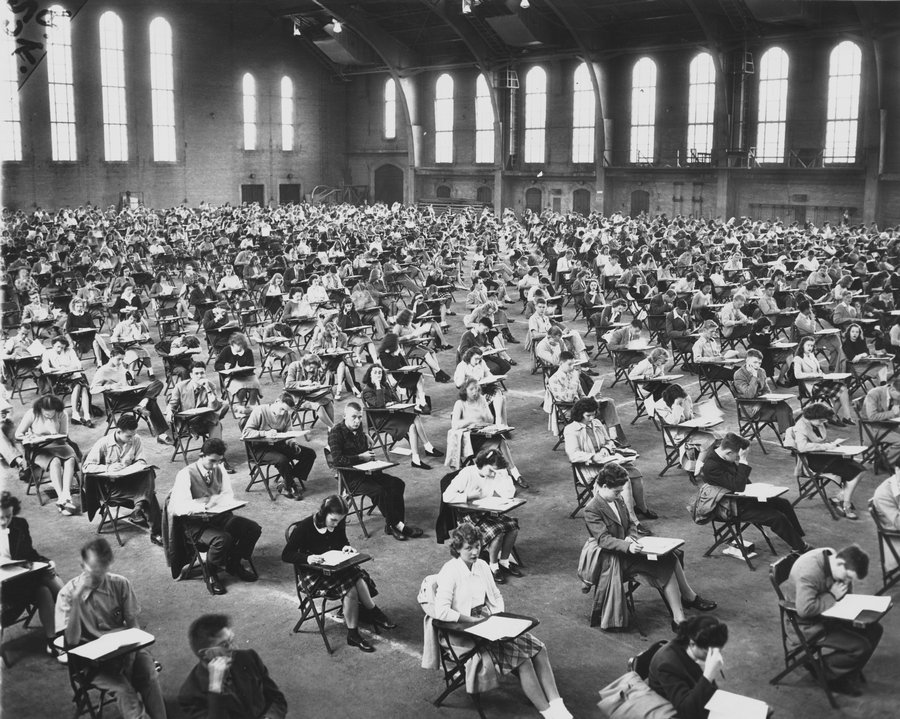 GRADING INFORMATION
THE SUBTERRANEAN IMAGINATION CHALLENGE You will be asked to
write ONE 8-10 page essay (also know as THE SUBTERRANEAN
IMAGINATION CHALLENGE) during the course of the term.
Please note that you will never be compelled to write
about something you absolutely hate. Though I will
provide you with a list of prompts, please feel free to
see me at any time over the course of the semester
during office hours to pitch/brainstorm essay ideas. FINAL EXAMINATION There will be an
Imagination Challenge In-Class Festival (aka, the
FINAL EXAM) on the last regularly scheduled day of
class: Thursday, May 6, 2021 at our regular class time
of 11am. Your final is absolutely comprehensive; it
assumes you have read all the books and screened all
the movies that are part of our required work. If you
do the work, the final is a breeze--even "fun" if you
can believe it. QUIZZES & ATTENDANCE During the semester, you can expect several In-class Panic-Inducing Challenges otherwise known as CHECK-YOU-DID-THE-READING QUIZZES. You can expect these miserable quizzes from time to time, the number of quizzes depending on how many of you are nostalgic for high school. In other words, if everyone acts like a talented university student, we will enjoy FEW if any quizzes during our semester. Coming to class for each seminar session is NOT
optional--the whole point of this class is to work
together, the idea being that we creatively and
magically convert our classroom into a chaotic,
unpredictable, and exciting intellectual laboratory.
Missing class, you miss, as well, the whole point of the
adventure. So please bypass no more than three classes
during the semester--you are responsible for any
work/notes you miss when you are absent. If you miss
MORE than three classes during the term and your grade
will decay in an ugly way. EXAMPLES: your hard-earned A-
will morph into a B-; your "gentleman's C" will appear
on the webportal as a "D. Ditching this class too often
will be as fun as a case of flesh-eating virus. Do you receive any second chances in this class on the
off chance you miss a quiz, blow an assignment, or
generally screwup altogether? Luckily, your eccentric
Professor is a recovering Catholic and believes in the
wonders of absolution--from time to time we will have
out-of-class cineTREK© assignments, aka EXTRA-CREDIT
OPPORTUNITIES; these can be used to atone for an
extra-absence, a missed quiz, or some other
class-impacting catastrophe you may experience during
the term.
OFFICE HOURS
|
||||||||||||||||||||
THURSDAY,
January 21, 2021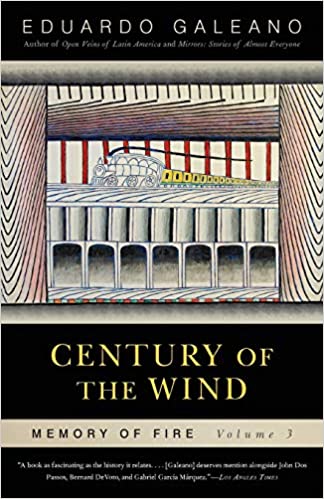 It's the first day of the semester
and we hit the ground running with our first book,
Eduardo Galeano's remarkable opus CENTURY OF THE
WIND. Read up to the year 1960 in preparation for
the first class. That's a fair amount of reading
before the semester starts, but two things: 1. You
are English and Comparative Literature majors or
graduate students so reading is your life's blood;
and 2. With the pandemic ongoing, reading is the
safest thing you can do these days. When It's the first day of the semester
and we hit the ground running with our first book,
Eduardo Galeano's remarkable opus CENTURY OF THE
WIND. Read up to the year 1960 in preparation for
the first class. That's a fair amount of reading
before the semester starts, but two things: 1. You
are English and Comparative Literature majors or
graduate students so reading is your life's blood;
and 2. With the pandemic ongoing, reading is the
safest thing you can do these days. When
 you
arrive at the year 1960 in Galeano's amazing
whirlwind of a "novel" (no, really, what is this book!?)
put it down and throw yourself into the amazing
prose stylings of American legend James Baldwin: "Fifth
Avenue, Uptown. you
arrive at the year 1960 in Galeano's amazing
whirlwind of a "novel" (no, really, what is this book!?)
put it down and throw yourself into the amazing
prose stylings of American legend James Baldwin: "Fifth
Avenue, Uptown.  My suspicion is
that Galeano's review of the century will bring you
up to speed in such a way so that hitting Baldwin's
essay will make you feel part of that moment -- we
will see how it plays out in class. About class,
which starts at 11am sharp, ... how do you join it?
Click the Zoomlink here. My suspicion is
that Galeano's review of the century will bring you
up to speed in such a way so that hitting Baldwin's
essay will make you feel part of that moment -- we
will see how it plays out in class. About class,
which starts at 11am sharp, ... how do you join it?
Click the Zoomlink here. |
||||||||||||||||||||
Tuesday,
January 26, 2021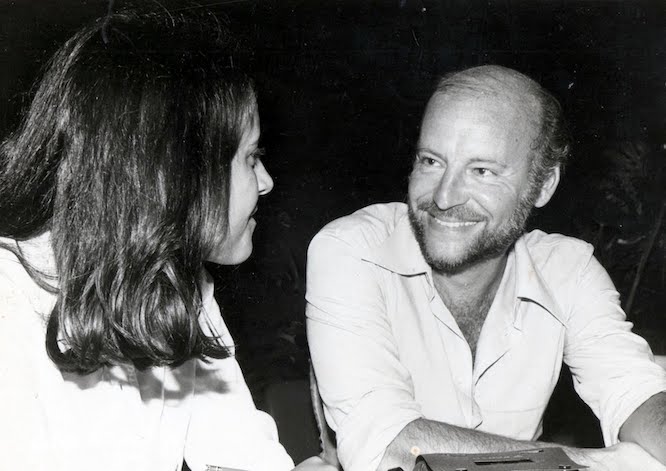 Class starts at 11am sharp--Click the Zoomlink here. We enter our chamber of zoom having finished our reading of Eduardo Galeano's CENTURY OF THE WIND. Galeano's vision of the Americas is wide-ranging. And, for a class tasked with studying American Literature from 1960 to the present, it provides a necessary review of a wildly unpredictable and violent 20th century. In class we will continue our discussion of Galeano's project -- come to class with a passage from the book that you want to do a close reading of in class (if you want to write out this brief close reading, do so, but do also be prepared to share your writing with the class). |
||||||||||||||||||||
THURSDAY, January
28, 2020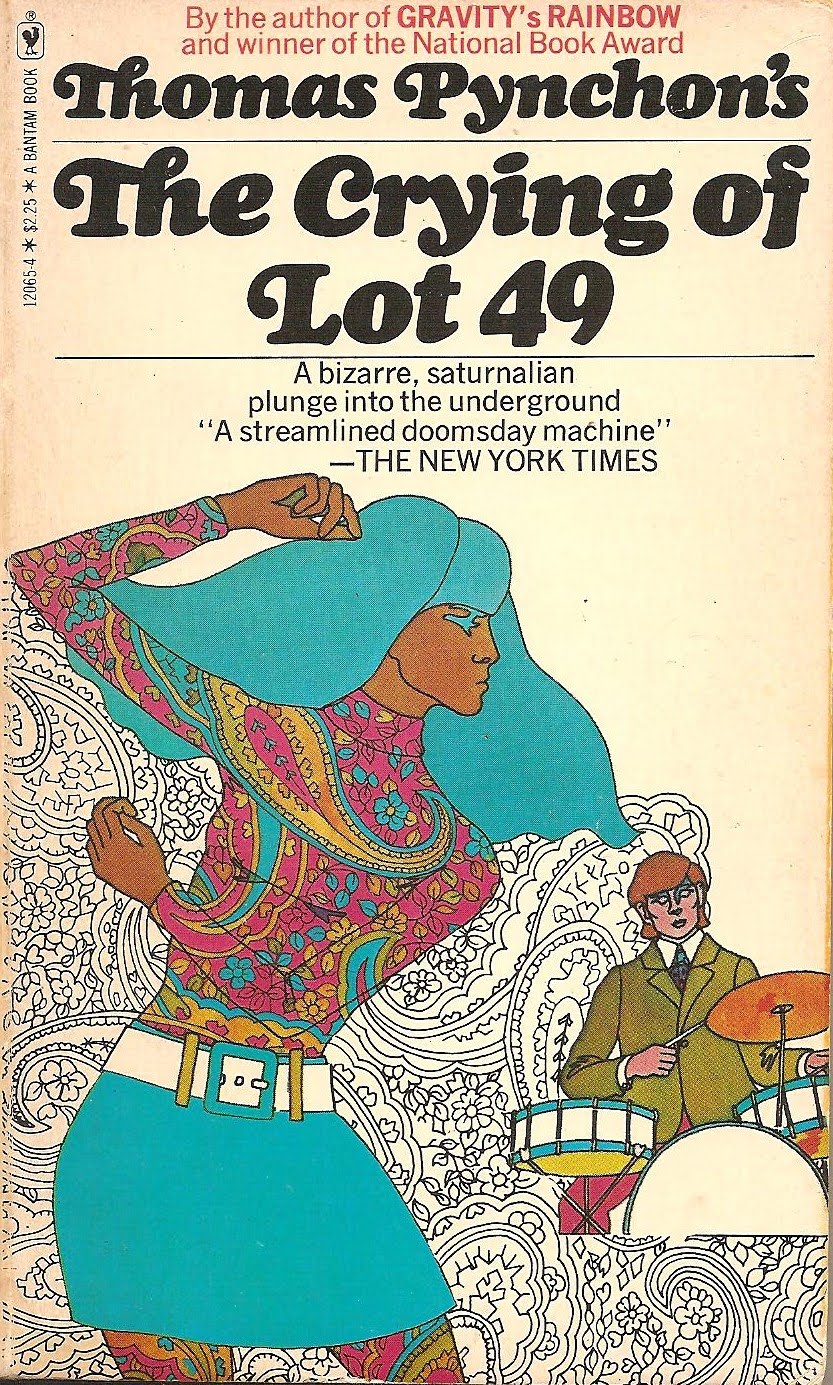 Leaving the visionary
prose and prose fiction of Eduardo Galeano and
James Baldwin, we dig deeper into the
#americansubterranean as we turn to the mad
paranoid America of THOMAS PYNCHON and THE
CRYING OF LOT 49 (1966). Enter our
Zoom session having read the first 119
pages of Pynchon's epic peripatetic madhouse
-- to the end of chapter 5. In addition to
being an "American" novel, this is also very
much a key piece of Californiana -- as you
read, see how many references to Califas you
can spy that would only be recognizable to a
"local" born and raised Californian! Additionally,
be sure to be on the lookout for figures,
scenes, and themes that jive
with our focus on what we are calling
existential noir: mirrors, duplicity, Leaving the visionary
prose and prose fiction of Eduardo Galeano and
James Baldwin, we dig deeper into the
#americansubterranean as we turn to the mad
paranoid America of THOMAS PYNCHON and THE
CRYING OF LOT 49 (1966). Enter our
Zoom session having read the first 119
pages of Pynchon's epic peripatetic madhouse
-- to the end of chapter 5. In addition to
being an "American" novel, this is also very
much a key piece of Californiana -- as you
read, see how many references to Califas you
can spy that would only be recognizable to a
"local" born and raised Californian! Additionally,
be sure to be on the lookout for figures,
scenes, and themes that jive
with our focus on what we are calling
existential noir: mirrors, duplicity, 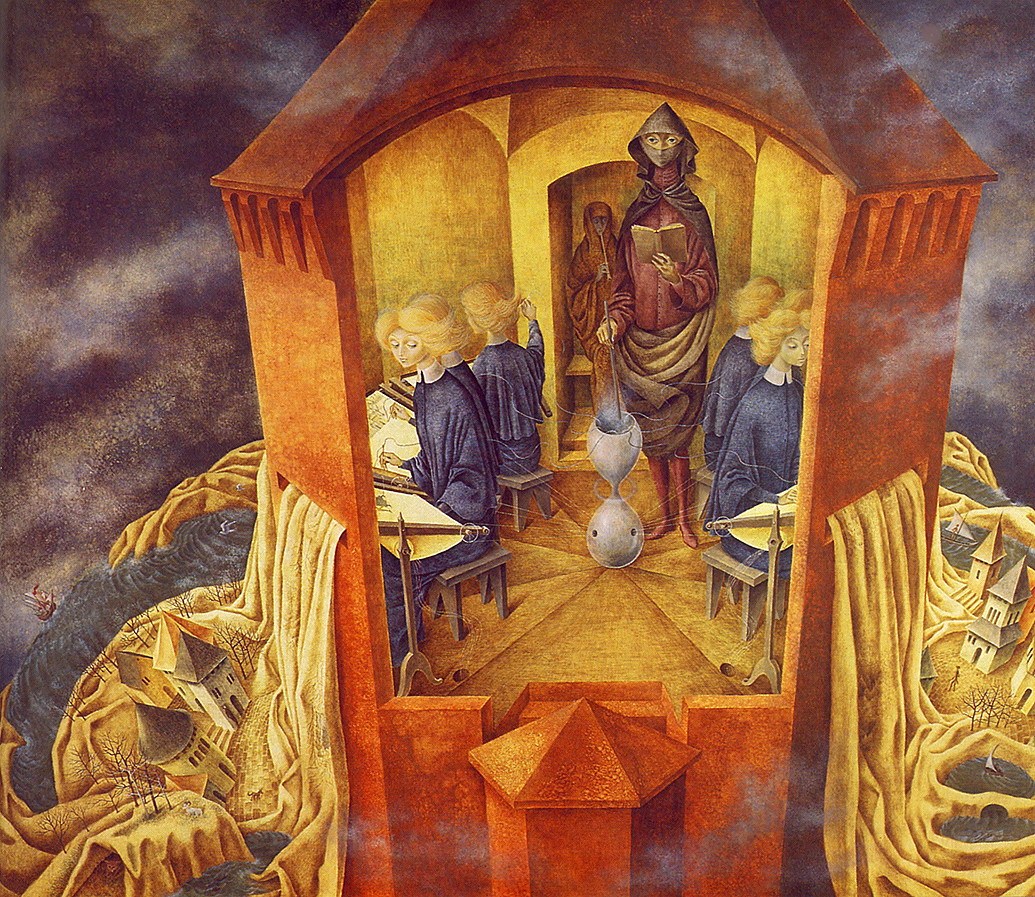 paranoia,
shadows, darkness, and more. For
instance, ponder the following -- why is a
haunting painting, "Embroidering Earth's
Mantle" by a Spanish ex-pat who relocated to
Mexico, Remedios Varo, woven into the DNA of
this singular novel? Click the image opposite
and study it before reading the novel. paranoia,
shadows, darkness, and more. For
instance, ponder the following -- why is a
haunting painting, "Embroidering Earth's
Mantle" by a Spanish ex-pat who relocated to
Mexico, Remedios Varo, woven into the DNA of
this singular novel? Click the image opposite
and study it before reading the novel. |
||||||||||||||||||||
Tuesday, February 2, 2021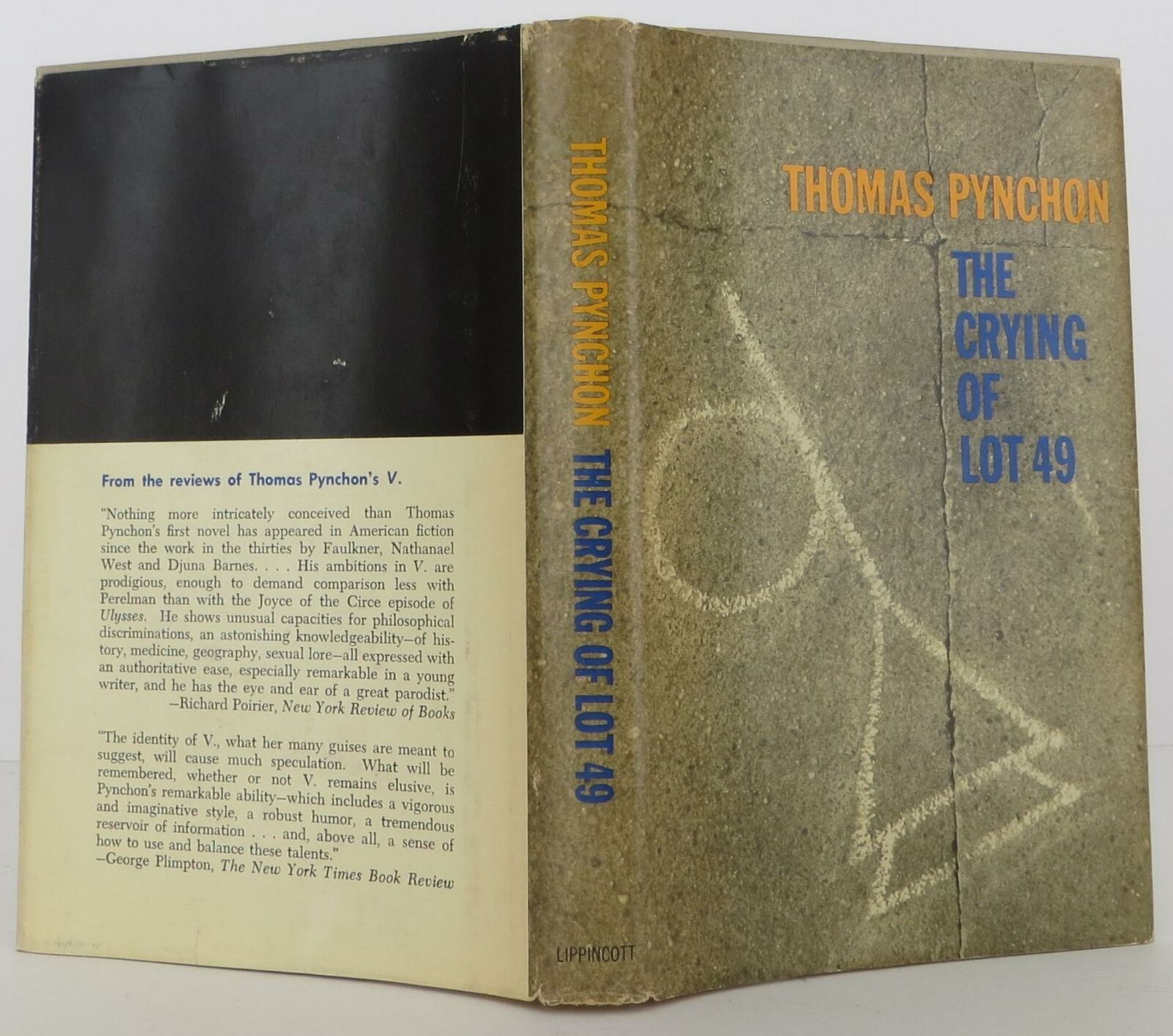 First edition, The Crying of Lot
49 | 1965 | Click to expand
Over the weekend you have diligently finished reading Thomas Pynchon's The Crying of Lot 49 for today's class via Zoom. Pynchon's novel does not come out of nowhere -- something had happened to Americans and "America" since Fitzgerald's Gatsby was all rage on the East Coast, and since Hemingway's stoic heroes braved the wilds of Europe for war, existential crisis and more. Featuring Oedipa Maas, one of the more striking characters in 20th century American Literature, 'Lot 49, plumbs the depths of the #americansubterranean -- a perfect, timely compliment to our American age of fear, loathing, QAnon, Parler, fake news and more. Really, is Oedipa's conundrum any less profound than our own? She confronts, as we do an American republic beset by subterranean resistance -- much of it to fictions consumed at face value as "real." Pynchon's micro-epic, his shortest work, packs a wallop as he treats us to a labyrinth of dark shadows and disguised players. In the end, we walk into this 20th century heart of darkness knowing less than when we came in, and fearing more. When you finish the novel, read this feature piece on Pynchon from New York Magazine's The Vulture. 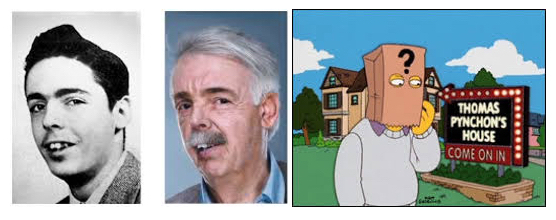 |
||||||||||||||||||||
|
Thursday,
February 4, 2021
From Pynchon's 'Lot 49, an
American novel conceived in Mexico we move to Mexico
itself and into the dark corridors of Carlos
Fuentes's Aura
-- our class meeting is here via Zoom. Fuentes was the
poster boy for the Latin American Boom novelists --
along with others like Julio Cortázar, Luisa
Valenzuela, and Gabriel García Márquez.  Handsome, dashing, and dramatic, the
son of a Mexican diplomat, Fuentes spent his teen
years from 12 to 18 in Washington DC, becoming a
sort of proto-Chicano -- Mexican to be sure, but
suffused with an American East Coast sensibility
(and an international world view). Fuentes's Aura is a
classic gothic novella, but it is also something
more as well, inscribing an allegorical history of
European conquest in Mexico while also telling one
hell of a psychological horror tale. As with
Pynchon's 'Lot 49, the novella evinces a
postmodern, post-structural sensibility, focused on
hermeneutics and textuality, with the chief male
protagonist, Felipe Montero, a cocky historian,
ruling the roost till he is subsumed (eliminated?)
by a matriarchal new world order -- imagine Edgar
Allan Poe combined with the Marquis de Sade and you
get Aura.
Read the whole novela for class today -- tons of
reading? Not at all! Handsome, dashing, and dramatic, the
son of a Mexican diplomat, Fuentes spent his teen
years from 12 to 18 in Washington DC, becoming a
sort of proto-Chicano -- Mexican to be sure, but
suffused with an American East Coast sensibility
(and an international world view). Fuentes's Aura is a
classic gothic novella, but it is also something
more as well, inscribing an allegorical history of
European conquest in Mexico while also telling one
hell of a psychological horror tale. As with
Pynchon's 'Lot 49, the novella evinces a
postmodern, post-structural sensibility, focused on
hermeneutics and textuality, with the chief male
protagonist, Felipe Montero, a cocky historian,
ruling the roost till he is subsumed (eliminated?)
by a matriarchal new world order -- imagine Edgar
Allan Poe combined with the Marquis de Sade and you
get Aura.
Read the whole novela for class today -- tons of
reading? Not at all!
|
||||||||||||||||||||
Tuesday,
February 9, 2021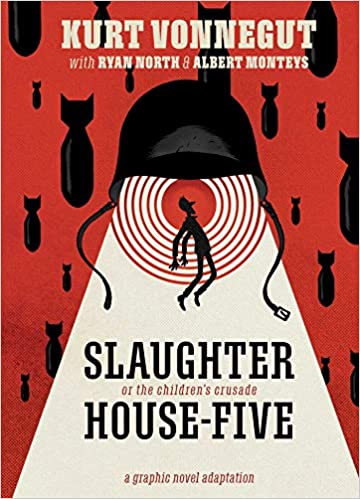 Zoom calls and so, you jump onto the
streaming channel to
thrill to the dark, funny satire of Kurt Vonnegut
-- some of you will be reading
SLAUGHTERHOUSE-FIVE, others will be reading the
graphic novel. I will try to run the
lectures / discussions so they are diverting and
compelling for both of these readerly
constituencies. If you are reading Ryan North's
and Albert Monteys's graphic novel adaptation of
SLAUGHTERHOUSE-FIVE OR THE CHILDREN'S CRUSADE,
read up to page ... yikes, no page numbers in the
graphic novel ... so read up to this double-page
spread: Zoom calls and so, you jump onto the
streaming channel to
thrill to the dark, funny satire of Kurt Vonnegut
-- some of you will be reading
SLAUGHTERHOUSE-FIVE, others will be reading the
graphic novel. I will try to run the
lectures / discussions so they are diverting and
compelling for both of these readerly
constituencies. If you are reading Ryan North's
and Albert Monteys's graphic novel adaptation of
SLAUGHTERHOUSE-FIVE OR THE CHILDREN'S CRUSADE,
read up to page ... yikes, no page numbers in the
graphic novel ... so read up to this double-page
spread:If you are reading the novel, read up to the end of Chapter 6, regardless of the edition you have -- I have the Delacorte Press hardcover and in that edition, Chapter 6 ends on page 145. Since the 1960s till today (reading Galeano suggests since 1900 till today) the United States has been at war with this nation or that in declared and secret (subterranean) conflicts spanning the globe. Vonnegut's anti-war anthem novel is also a dynamic dissection of the cultural and sociological consequences for individuals and the general population of these decades of war. His is a lurid, funny, tragic eye -- the Twain of our century, the Moliere and Swift of our American nightmares, Vonnegut's lucid, down-to-earth ironies will keep you turning the pages whether it is the novel or the graphic novel you are reading. If you have the time and own both works, read the novel first and then the graphic novel in term, trying to imagine the decision making that went into the comic adaptation of Vonnegut's masterpiece. |
||||||||||||||||||||
Thursday,
February 11, 2021 Enter your Zoom portal having finished your reading of Kurt Vonnegut's SLAUGHTERHOUSE-FIVE -- either the original novel or the graphic novel adaptation by North and Montey. By this point of the semester you have Galeano, Baldwin, Fuentes, and Vonnegut under your belt, into your eyes and psyche. Are there any general conclusions we can begin to make about the #americansubterranean? Any trends or tendencies we can begin to enumerate? Not required but valuable are Salman Rushdie's thoughts on Vonnegut's SLAUGHTERHOUSE-FIVE ... give it a read when you finish the novel. 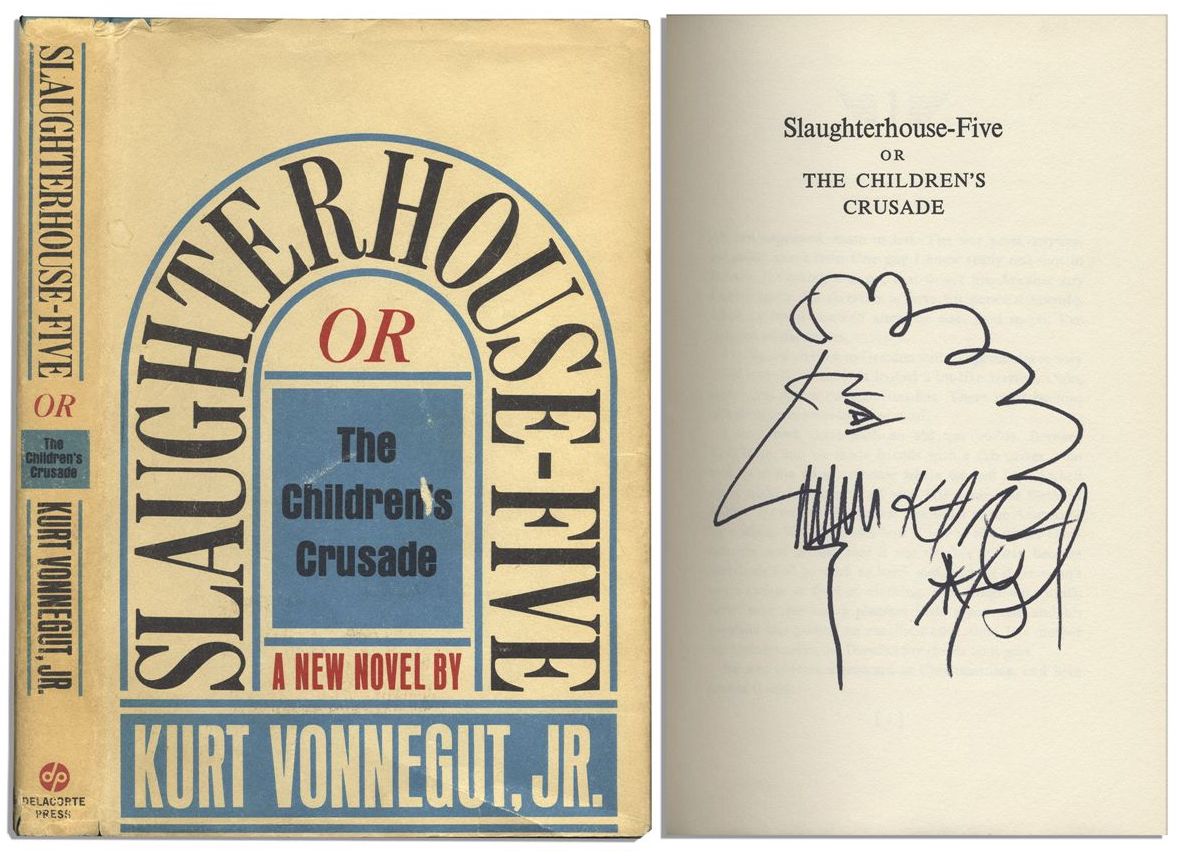 Signed First Edition of Slaughterhouse-Five,
click to enlarge
|
||||||||||||||||||||
Tuesday,
February 16, 2021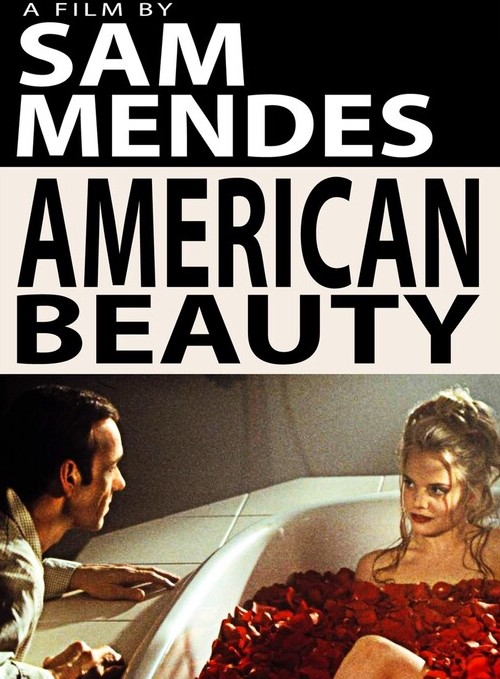 On your own, before class begins, screen AMERICAN BEAUTY, directed by Sam Mendes, a Brit, and written by Alan Ball, from Atlanta, Georgia. We will have a one-hour Zoom discussion today at 11:00am sharp. You may also want to check out the discussion linked to here -- not required -- only recommended! As you watch the film, take notes as you would for any text in the class--consider thematic connections, in particular, between the world view of Kurt Vonnegut and that of Sam Mendes/Alan Ball. What has happened to the America of the 1970s as we move closer to the 21st century we live in? |
||||||||||||||||||||
Thursday,
February 18, 2021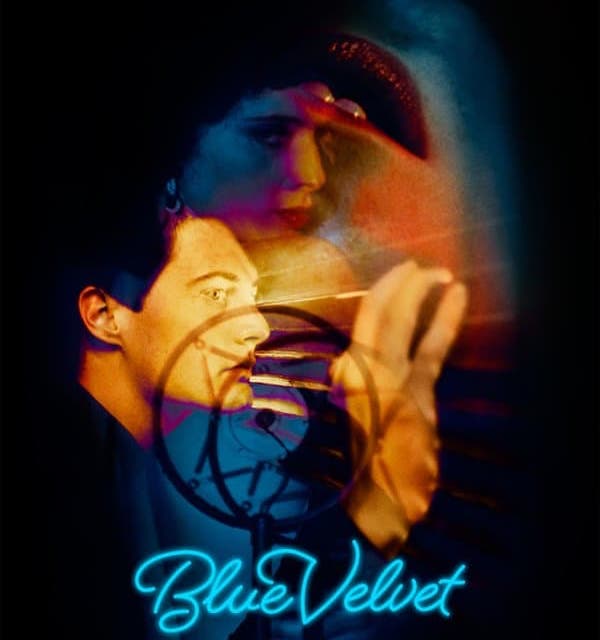 On your own, before class begins, screen BLUE VELVET, written and directed by David Lynch. We will have a one-hour Zoom discussion today at 11:00am sharp. If you can, skip down below to the description of our Thursday, February 25, 2021 guest lecture which will focus both on BLUE VELVET and your next reading, PROUST IN BLACK. David Lynch is a cunning master of the American Subterranean and his masterwork, BLUE VELVET, knowingly plumbs the depths of "innocent" Mid-America with a razor sharp eye dipped in a reality that is hard to witness; as with AMERICAN BEAUTY, take notes as you sceen the film, making sure to identify moments in the movie that cry out for investigation and discussion. |
||||||||||||||||||||
Tuesday, February 23, 2021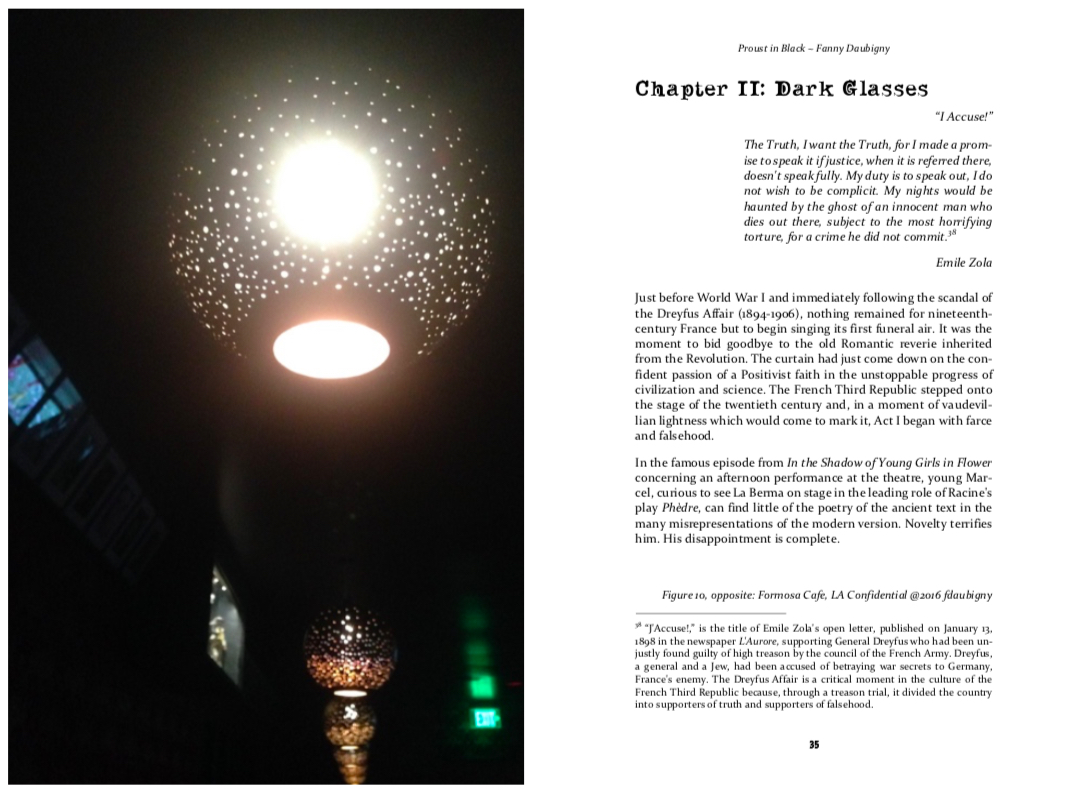 class zoom link 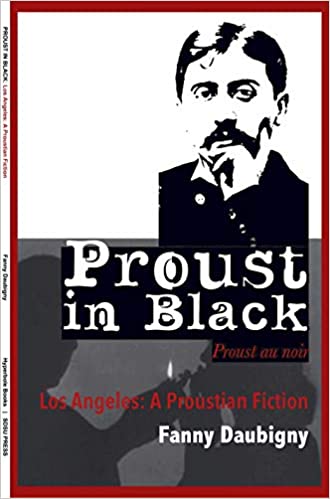 What in the hell are we doing reading a piece of intellectual history, literary criticism, and film/cultural theory in an American literature class? The mystery is solved as you begin to read Fanny Daubigny's PROUST IN BLACK. What begins as a piece inspired by French writer Marcel Proust (IN SEARCH OF LOST TIME) ends up being an existential meditation on Los Angeles, the City of Angels, as a kind of Proustian fiction, with Hollywood and its productions feeding the shadowy pulse of this West Coast urban site. For class today read to page 75--don't be shy about looking up and screening scenes from films written about in these pages (it's kind of what YouTube was inventend to do!). As you read, consider the goals (and the tricks) of Professor Daubigny, a CSU Professor at Cal State Fullerton--the book unfolds as a kind of labyrinth about the labyrinth that is LA. In addition to reading these pages from PROUST IN BLACK also read the interview with Daubigny here on the SDSU Press blog. 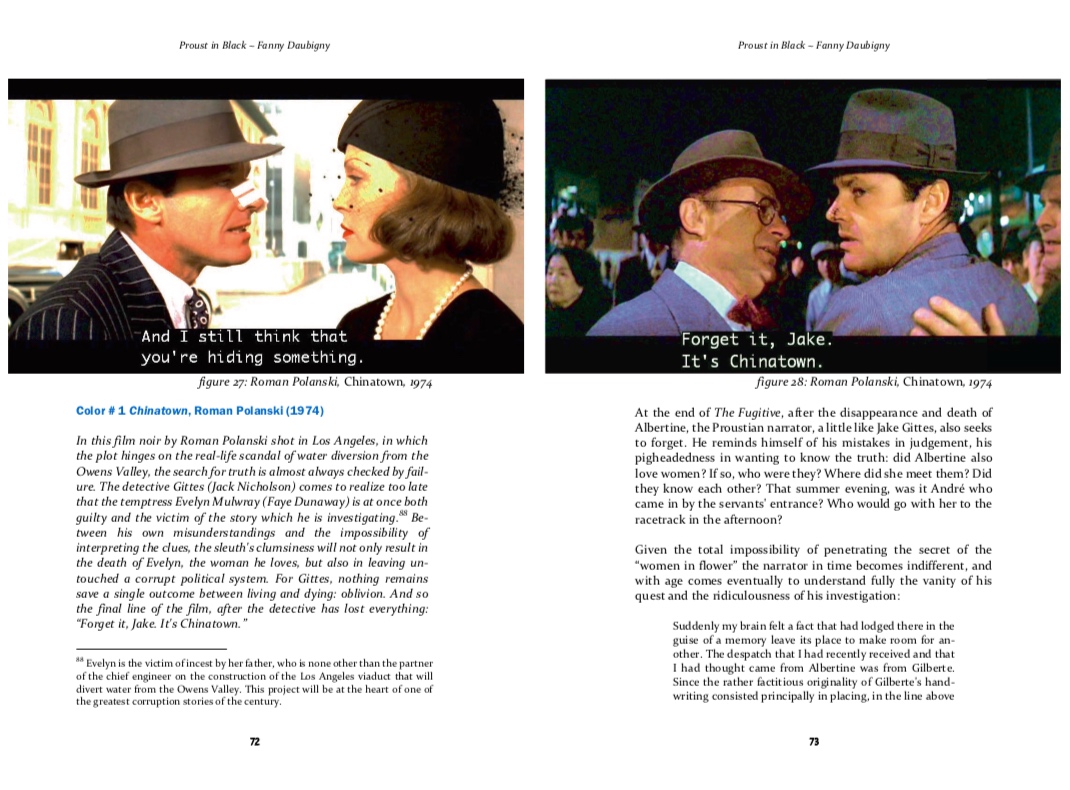
|
||||||||||||||||||||
| Thursday,
February 25, 2021 Finish reading PROUST IN BLACK--then strap yourself in for ... 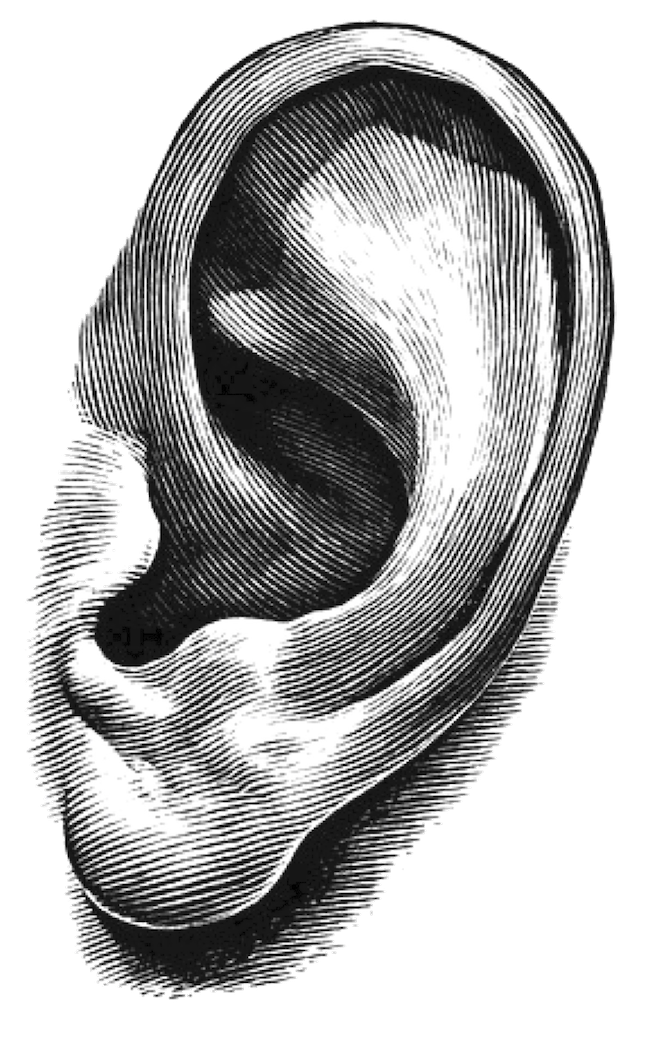 Hearing with a Severed
Ear Hearing with a Severed
Ear In Search of Le Petit Noir Musical Phrase in David Lynch’s BLUE VELVET and Fanny Daubigny’s PROUST IN BLACK Dr. Pam Fox-Kuhlken Thursday Feb. 25, 2021, 11am to 12:15 live on ZOOM! Register here: http://bit.ly/proust-fox-kuhlken-malas 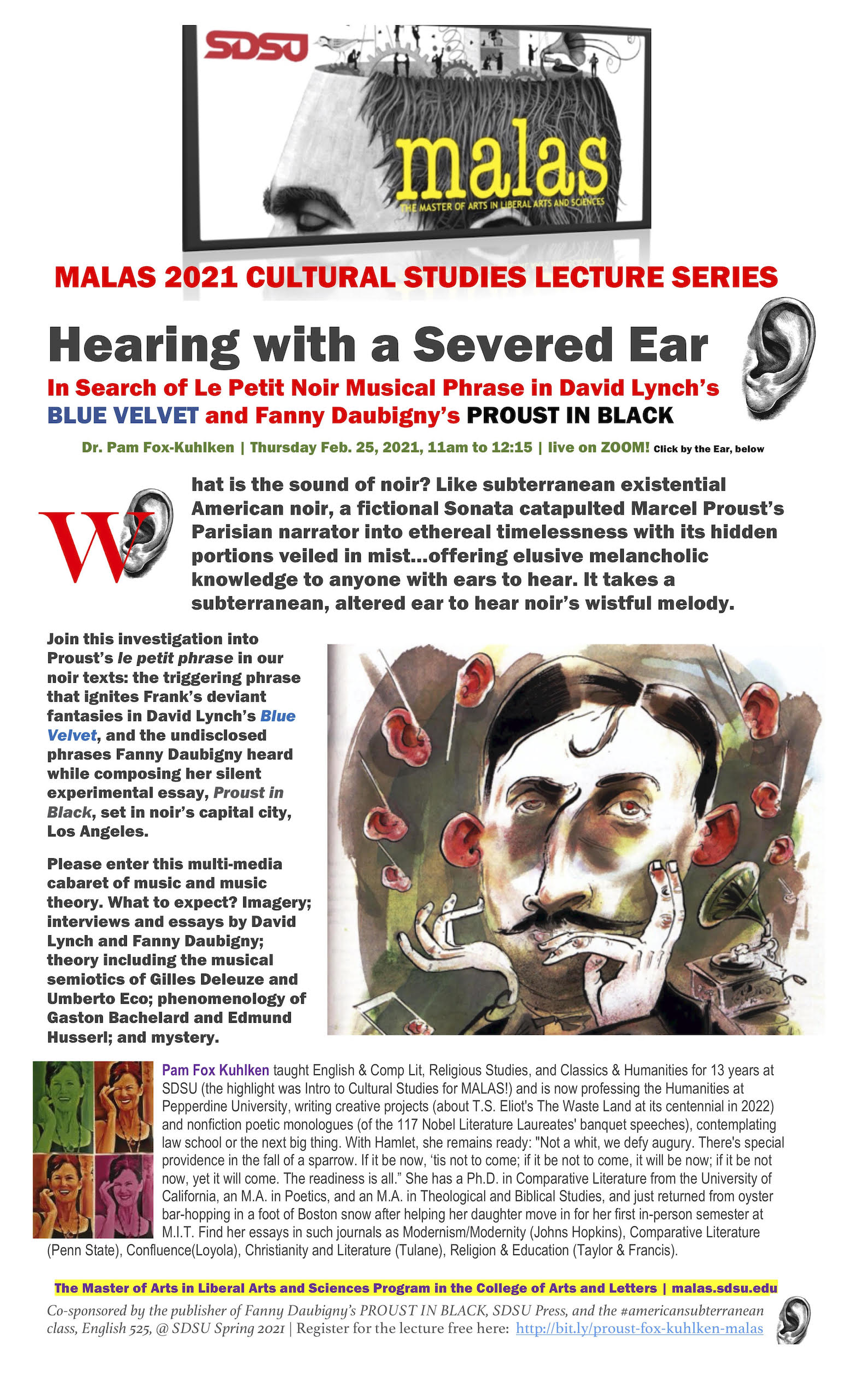 MALAS 2021 CULTURAL STUDIES LECTURE SERIES malas.sdsu.edu | co-sponsored by sdsupress.sdsu.edu What is the sound of noir? Like subterranean existential American noir, a fictional Sonata catapulted Marcel Proust’s Parisian narrator into ethereal timelessness with its hidden portions veiled in mist…offering elusive melancholic knowledge to anyone with ears to hear. It takes a subterranean, altered ear to hear noir’s wistful melody. Join this investigation into Proust’s le petit phrase in our noir texts: the triggering phrase that ignites Frank’s deviant fantasies in David Lynch’s Blue Velvet, and the undisclosed phrases Fanny Daubigny heard while composing her silent experimental essay, Proust in Black, set in noir’s capital city, Los Angeles. Please enter this multi-media cabaret of music and music theory. What to expect? Imagery; interviews and essays by David Lynch and Fanny Daubigny; theory including the musical semiotics of Gilles Deleuze and Umberto Eco; phenomenology of Gaston Bachelard and Edmund Husserl; and mystery. 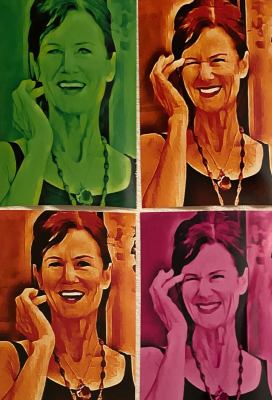 Pam Fox Kuhlken
taught English & Comp Lit, Religious Studies, and
Classics & Humanities for 13 years at SDSU (the
highlight was Intro to Cultural Studies for MALAS!) and
is now professing the Humanities at Pepperdine
University, writing creative projects (about T.S.
Eliot's The Waste Land at its centennial in 2022) and
nonfiction poetic monologues (of the 117 Nobel
Literature Laureates' banquet speeches), contemplating
law school or the next big thing. With Hamlet, she
remains ready: "Not a whit, we defy augury. There's
special providence in the fall of a sparrow. If it be
now, ‘tis not to come; if it be not to come, it will be
now; if it be not now, yet it will come. The readiness
is all.” She has a Ph.D. in Comparative Literature from
the University of California, an M.A. in Poetics, and an
M.A. in Theological and Biblical Studies, and just
returned from oyster bar-hopping in a foot of Boston
snow after helping her daughter move in for her first
in-person semester at M.I.T. Find her essays in such
journals as Modernism/Modernity (Johns Hopkins),
Comparative Literature (Penn State), Confluence(Loyola),
Christianity and Literature (Tulane), Religion &
Education (Taylor & Francis). Pam Fox Kuhlken
taught English & Comp Lit, Religious Studies, and
Classics & Humanities for 13 years at SDSU (the
highlight was Intro to Cultural Studies for MALAS!) and
is now professing the Humanities at Pepperdine
University, writing creative projects (about T.S.
Eliot's The Waste Land at its centennial in 2022) and
nonfiction poetic monologues (of the 117 Nobel
Literature Laureates' banquet speeches), contemplating
law school or the next big thing. With Hamlet, she
remains ready: "Not a whit, we defy augury. There's
special providence in the fall of a sparrow. If it be
now, ‘tis not to come; if it be not to come, it will be
now; if it be not now, yet it will come. The readiness
is all.” She has a Ph.D. in Comparative Literature from
the University of California, an M.A. in Poetics, and an
M.A. in Theological and Biblical Studies, and just
returned from oyster bar-hopping in a foot of Boston
snow after helping her daughter move in for her first
in-person semester at M.I.T. Find her essays in such
journals as Modernism/Modernity (Johns Hopkins),
Comparative Literature (Penn State), Confluence(Loyola),
Christianity and Literature (Tulane), Religion &
Education (Taylor & Francis).The Master of Arts in Liberal Arts and Sciences Program in the College of Arts and Letters | malas.sdsu.edu | Co-sponsored by the publisher of Fanny Daubigny’s PROUST IN BLACK, SDSU Press, and the #americansubterranean class, English 525, @ SDSU Spring 2021 | Register for the lecture free here: ZOOMLINK http://bit.ly/proust-fox-kuhlken-malas |
||||||||||||||||||||
Tuesday,
March 2, 2021--via Zoom. 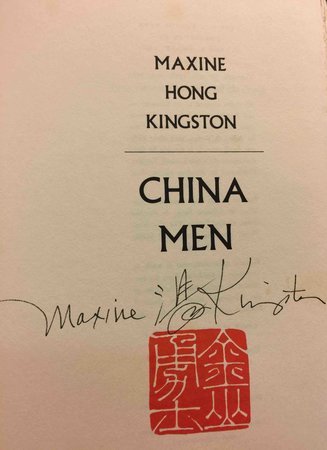 From our
daliance with Daubigny, Proust, Lynch and more--a week
where a Comparative Literature approach to American
Literature was in full force--we move back to our post
1960s chronology and to the striking prose of Maxine
Hong Kingston. As with Galeano was are with a writer
resurrecting via narration the shades of fallen figures
from the past. But Hong Kingston is more genealogist
than historian as she converses with the ghosts of her
own family, retelling their stories and bringing them to
life again. Hong Kingston had already achieved fame and
fortune with her classic WOMAN WARRIOR when she changed
gears and opted to focus on men from her family. Read to
page 162, the end of the short chapter entitled "Alaska
China Men." If you can, make the time and read
this engrossing feature piece on Maxine Hong
Kingston from the New Yorker. From our
daliance with Daubigny, Proust, Lynch and more--a week
where a Comparative Literature approach to American
Literature was in full force--we move back to our post
1960s chronology and to the striking prose of Maxine
Hong Kingston. As with Galeano was are with a writer
resurrecting via narration the shades of fallen figures
from the past. But Hong Kingston is more genealogist
than historian as she converses with the ghosts of her
own family, retelling their stories and bringing them to
life again. Hong Kingston had already achieved fame and
fortune with her classic WOMAN WARRIOR when she changed
gears and opted to focus on men from her family. Read to
page 162, the end of the short chapter entitled "Alaska
China Men." If you can, make the time and read
this engrossing feature piece on Maxine Hong
Kingston from the New Yorker. |
||||||||||||||||||||
Thursday, March 4, 2021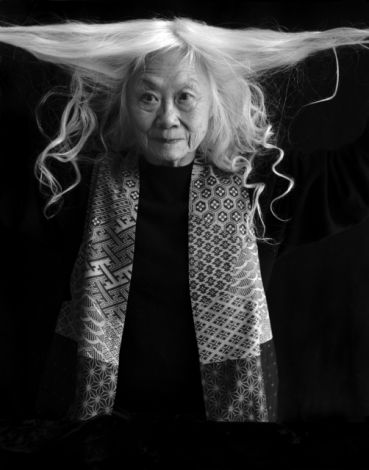 Weary,
with eyes blurry, you stumble onto Zoom for our class today
having finished the epic amazingness that is CHINA
MEN. As with Galeano we may be at pains to
characterize this writing. Is it history? memoir?
genealogy? homage? Then again, does it matter?
Rereading the tales of tragedy, success, discovery,
disappointment and more that we gather from Hong
Kingston's pages, we emerge from the exercise having
learned so much more. For class today, write a page or
two in the style of Hong Kingston on a man from your
family. Have it ready to share for the final segment
of today's class. Weary,
with eyes blurry, you stumble onto Zoom for our class today
having finished the epic amazingness that is CHINA
MEN. As with Galeano we may be at pains to
characterize this writing. Is it history? memoir?
genealogy? homage? Then again, does it matter?
Rereading the tales of tragedy, success, discovery,
disappointment and more that we gather from Hong
Kingston's pages, we emerge from the exercise having
learned so much more. For class today, write a page or
two in the style of Hong Kingston on a man from your
family. Have it ready to share for the final segment
of today's class. Also, surprise! Today you will receive your Subterranean Imagination Challenge (aka, the big scary essay / paper/ thingie). It is due Friday, March 26, 2021 at noon--sent to me via email as an attachment. |
||||||||||||||||||||
Tuesday,
March 9, 2021 via Zoom!
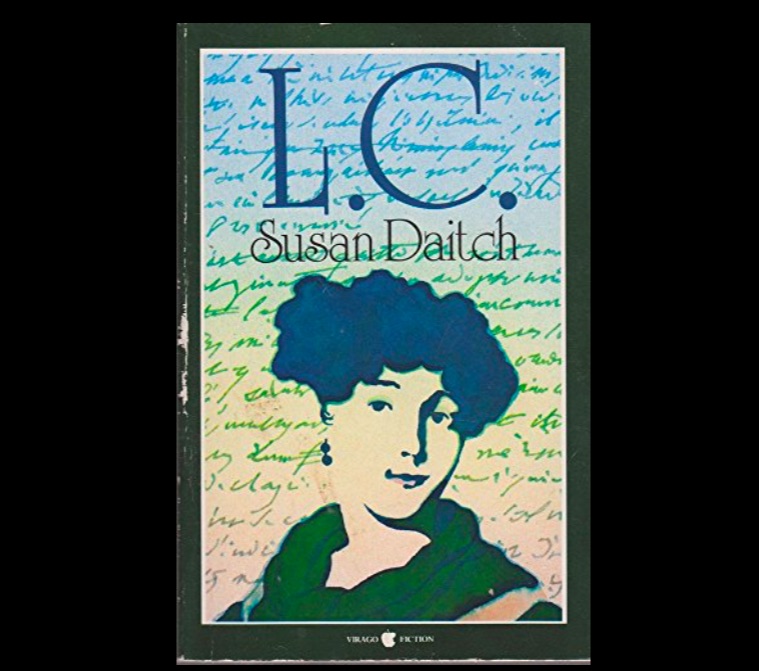 Cover of the 1st British edition of LC |
||||||||||||||||||||
Thursday, March 11, 2021
via Zoom!
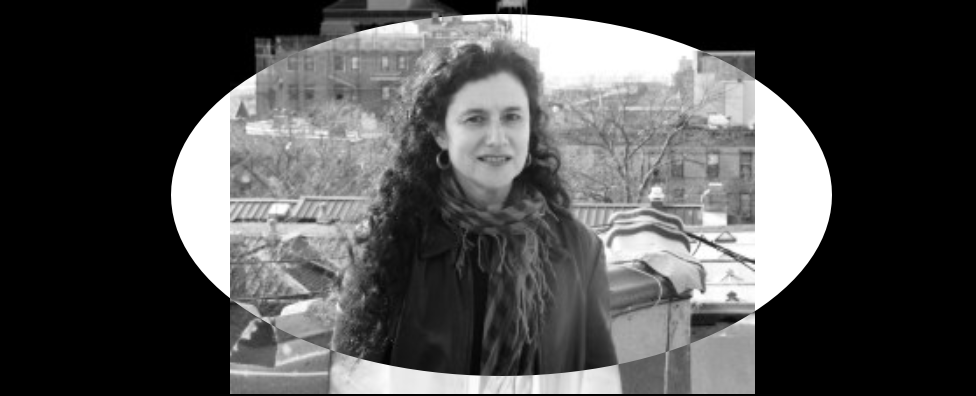 Read LC to page 215--the novel leads throught the lives and imaginations of three remarkable women: Lucienne Crozier, Willa Rehnfield, and Jane Amme. As you the pages turn readers become more and more aware of the subterranean connections that connect these three lives--simultaneously, however, Daitch's novelistic machinations are working like Remedios Varo's painting in THE CRYING OF LOT '49. Watch for this as you are reading!  UPDATED Subterranean Imagination Challenge Prompts! Subterranean Imagination Challenge (aka, the big scary essay / paper/ thingie). It is due Friday, March 26, 2021 at noon--sent to me via email as an attachment. |
||||||||||||||||||||
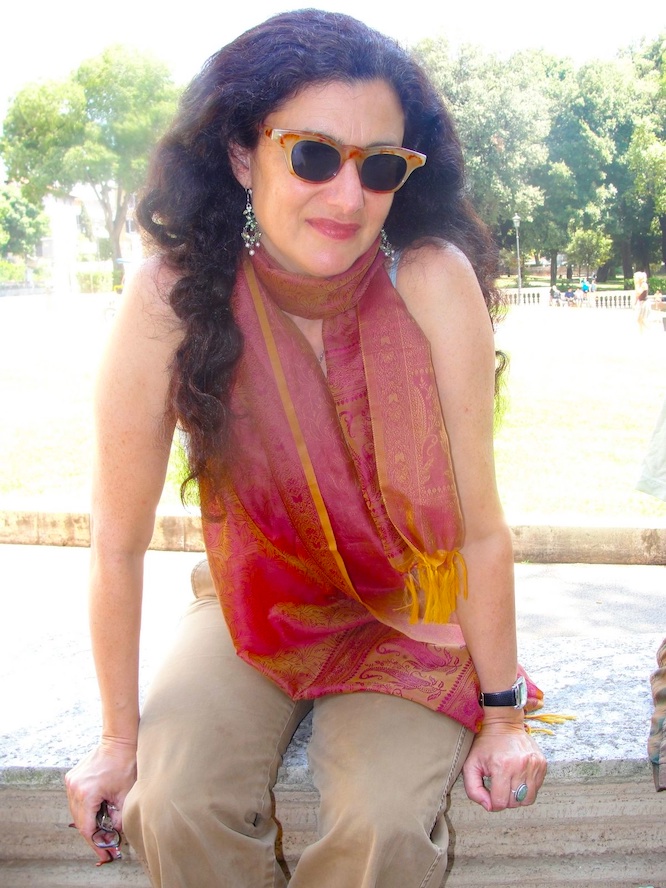 Tuesday, March
16, 2021 Tuesday, March
16, 2021Finish L.C., hang with Daitch! Hit the poster below to get all the details! It should be a very special day--you are welcome to have your book-loving friends join us (just share this registration link here. Class Registration
Link? Go here:
https://sdsu.zoom.us/meeting/register/tZcuduiupzkuHNbIs_OF7fJ71FvsVR6K3Czf click to expand: Class Registration Link?
Go here:
https://sdsu.zoom.us/meeting/register/tZcuduiupzkuHNbIs_OF7fJ71FvsVR6K3Czf |
||||||||||||||||||||
Thursday, March 18, 2021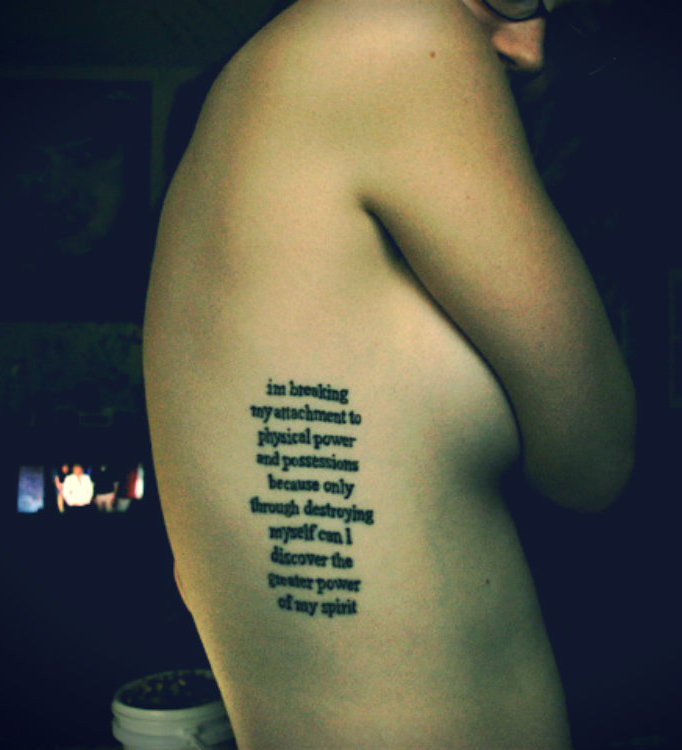  Welcome
to the pages of FIGHT CLUB by Chuck Palahniuk--you
will enter the our Zoom! session this
morning having read the first 10 chapters up to
page 85 in the most common trade paperback
edition! Welcome
to the pages of FIGHT CLUB by Chuck Palahniuk--you
will enter the our Zoom! session this
morning having read the first 10 chapters up to
page 85 in the most common trade paperback
edition! |
||||||||||||||||||||
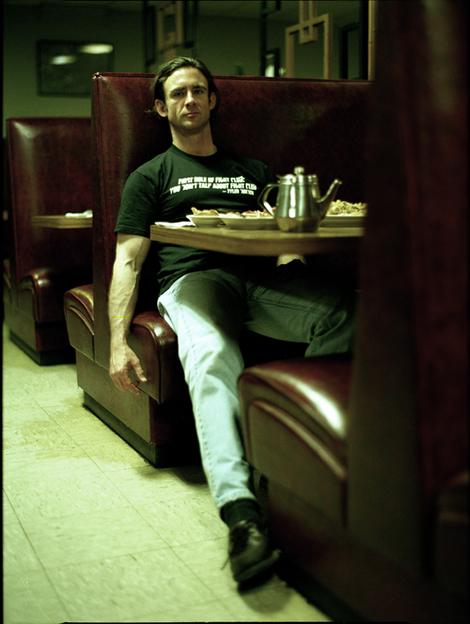 It is Tuesday, March 23, 2021
and you have finished reading Palahniuk's FIGHT CLUB.
Join us live via Zoom!
and be sure to bring a select quotation from
the last 20 pages or so of the novel, that you
view/read to be essential for an understanding of the
book. Please write this out this quote along with a
paragraph justification for your selection and have it
ready to share in class with your classmates. It is Tuesday, March 23, 2021
and you have finished reading Palahniuk's FIGHT CLUB.
Join us live via Zoom!
and be sure to bring a select quotation from
the last 20 pages or so of the novel, that you
view/read to be essential for an understanding of the
book. Please write this out this quote along with a
paragraph justification for your selection and have it
ready to share in class with your classmates. |
||||||||||||||||||||
Thursday,
March 25, 2021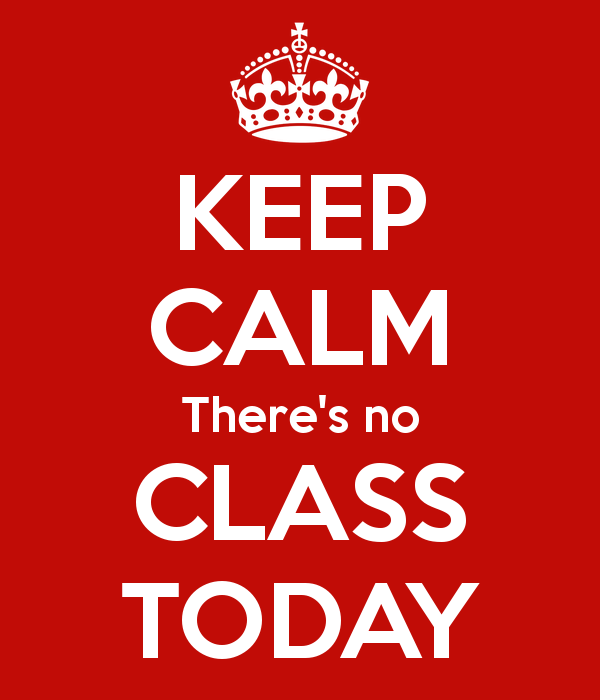 No Class--work on your essays! |
||||||||||||||||||||
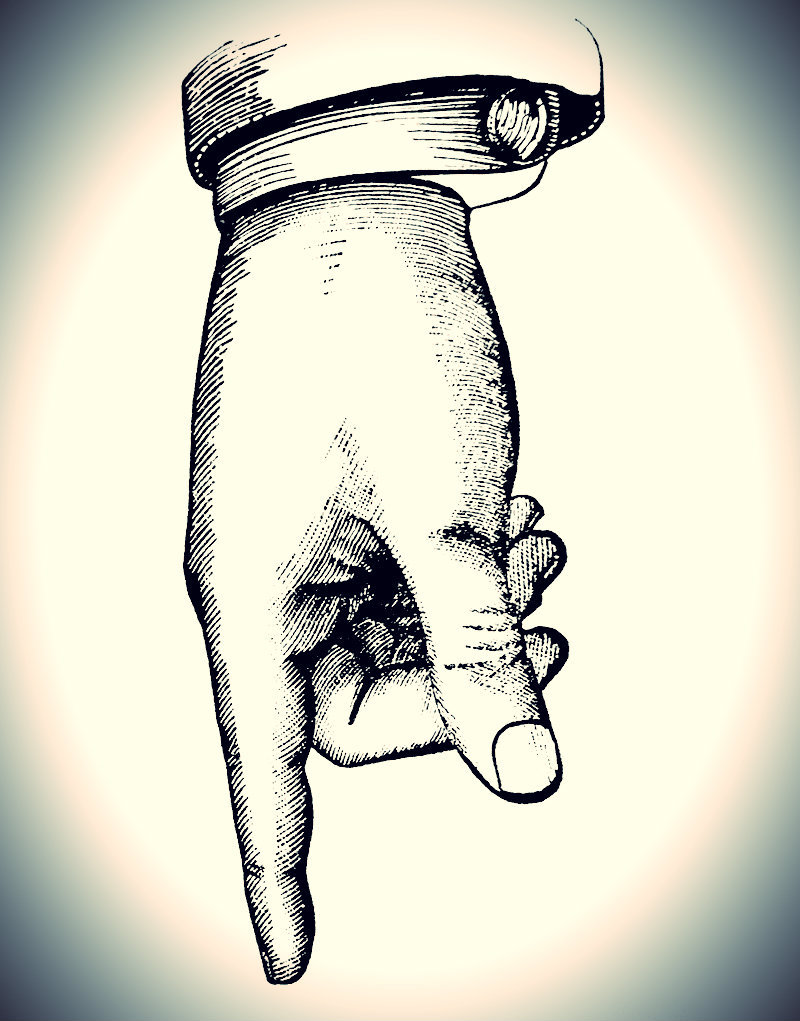 Friday, March 26, 2021: Your Subterranean Imagination Challenge Due! Noon! via email to bnericci@sdsu.edu  |
||||||||||||||||||||
| Tuesday, March 30, 2020 REST AND RECOVERY DAY 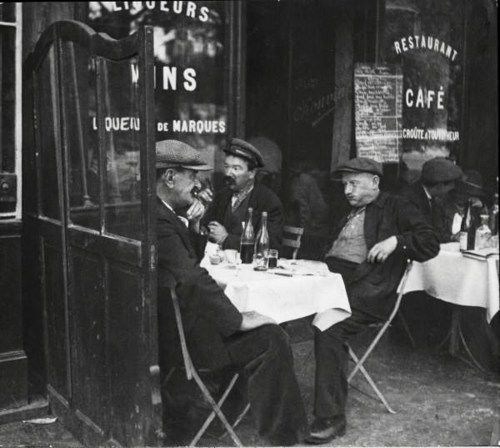 |
||||||||||||||||||||
| Thursday,
April 1, 2020 No synchronous class today -- however ... As an addition to your REST AND RECOVERY this week, I want you to screen the two movies listed on your list of required texts: Chris Marker's La Jetèe and Alex Rivera's Sleep Dealer. If you wish, you can begin reading Drone Visions by Naief Yehya as it is this book that I want you to filter the film screenings through--or is it the film screenings I want you to filter the book through? Probably both! You can also start reading chapters in Talking #BrownTV. Only if you want to! Not required today! 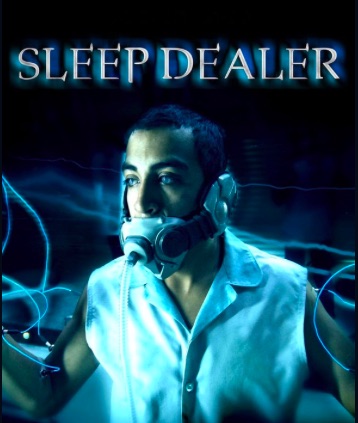  |
||||||||||||||||||||
Tuesday,
April 6, 2020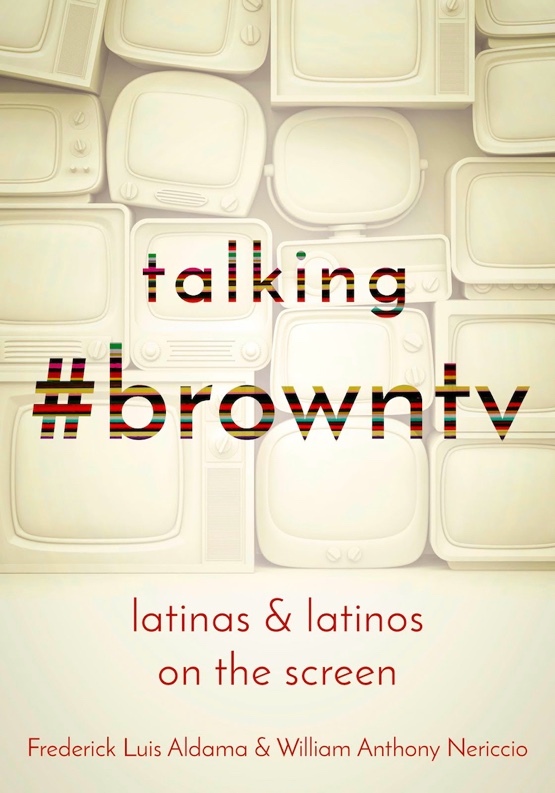 Synchronous class though the magic of Zoom! Today we turn to the pages of Frederick Aldama's and yours truly's TALKING #BrownTV. Read to page 109. As you read, try to read our critical cultural studies text through the lenses of both SLEEP DEALER (which has a cameo in the book) and LA JETÈE (whose savvy Chris Markerian spirit infuses the work of both Aldama and myself). 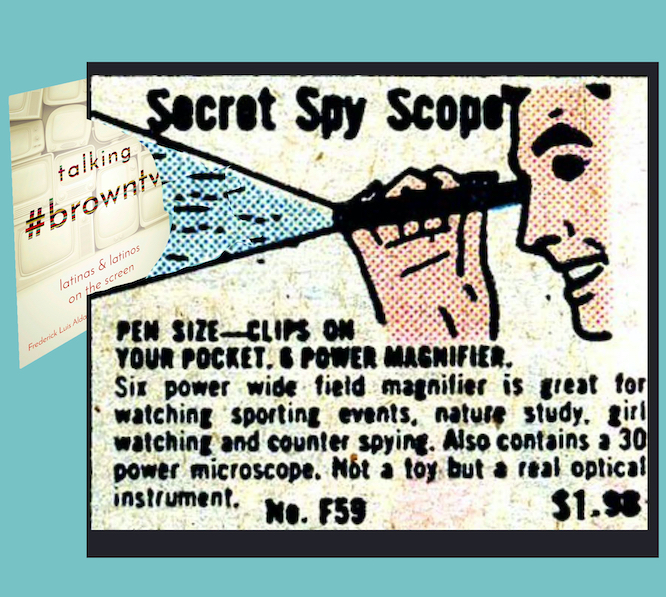 |
||||||||||||||||||||
|
Thursday, April 8, 2020 You fire up your magic Zoom
machine having pre-registered here--a
special link for our public lecture today!
You've also prepared for today's class by
finishing the book. All of it! Every page! ;-) Decoding Latinx Dreams &
Nightmares of Speedy Gonzales, Pepe Le Pew, the
Frito Bandito, Breaking Bad and Narcos: Talking
#BrownTV With Frederick “Fede” Aldama,
Professor, The Ohio State University, and, yours
truly, William “Memo” Nericcio #BreakingNews!!! –you’re hosting
a public real-time streaming lecture by me and
Frederick Aldama, the Ohio State University. The
lecture will feature readings from our new OSU
Press book TALKING #BrownTV: Latinas
and Latinos on the Screen as well as a
discussion of contemporary raging debates
concerning stereotypes, cancel culture, beloved
cartoon characters, and scary Latinas/os on TV.
|
||||||||||||||||||||
| Tuesday,
April 13, 2020 Day 1: DRONE VISIONS, read to page 83 |
||||||||||||||||||||
| Thursday,
April 15, 2020 REST AND RECOVERY DAY CATCH UP WITH YOUR READING DAY 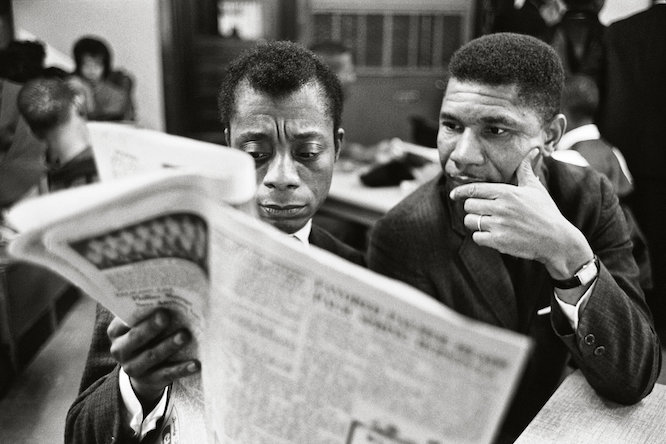 |
||||||||||||||||||||
Tuesday, April 20, 2020 Zoom!
DAY 2 Drone Visions, Finish the book. Special
Lecture! 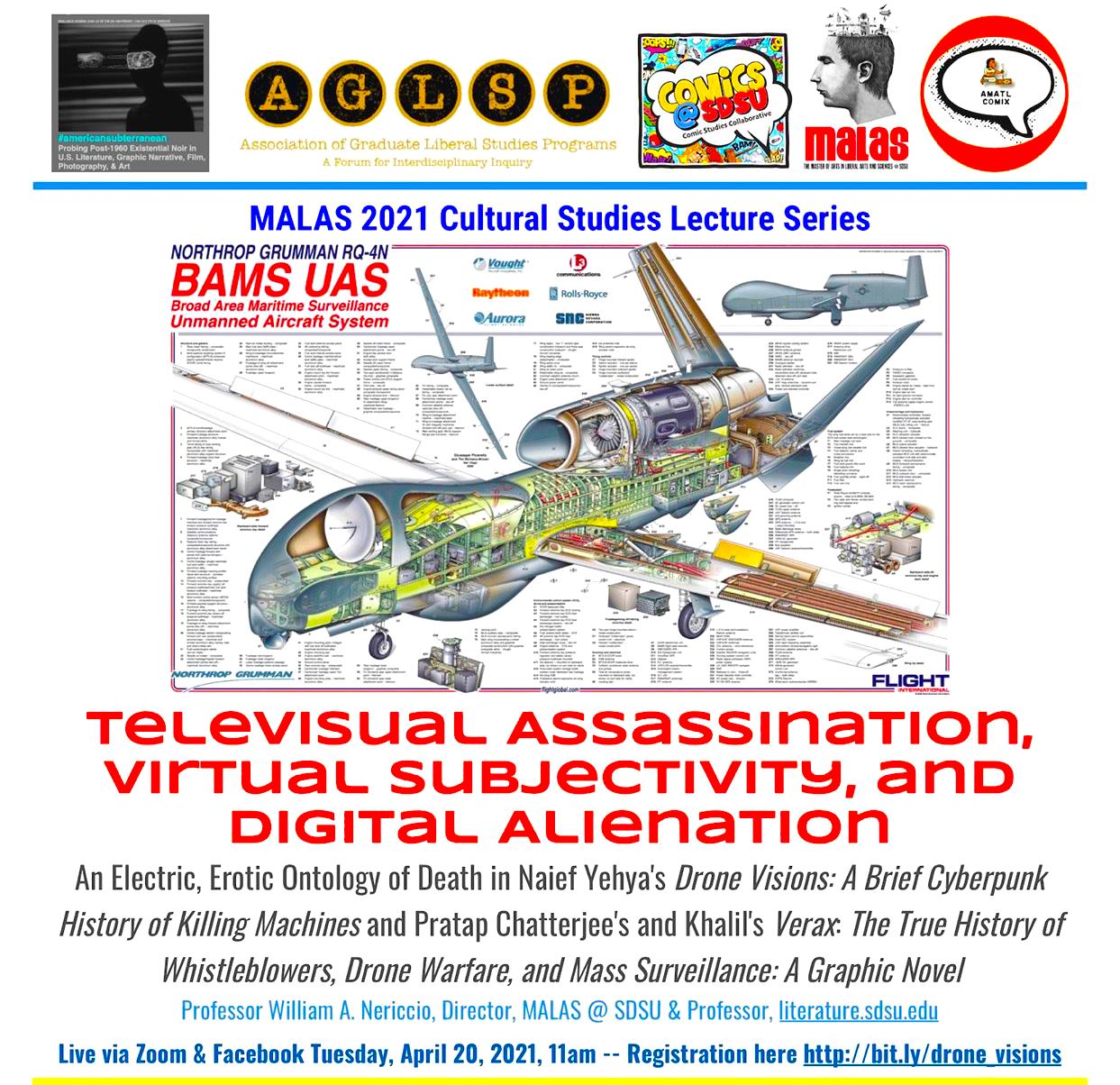 |
||||||||||||||||||||
Thursday,
April 22, 2020 VIA Zoom! You can't wait to get to class today as we dive into the quiet minimal existential sadness that is Adrian Tomine's INTRUDERS. There is much akin between the subterranean and the intestitial, between the underground and transience. And Tomine hits it just right in this mini graphic novella masterpiece! Read the entire book for class today. When you finish this short work--read this! I think you'll like it.... AFTER you finish it! 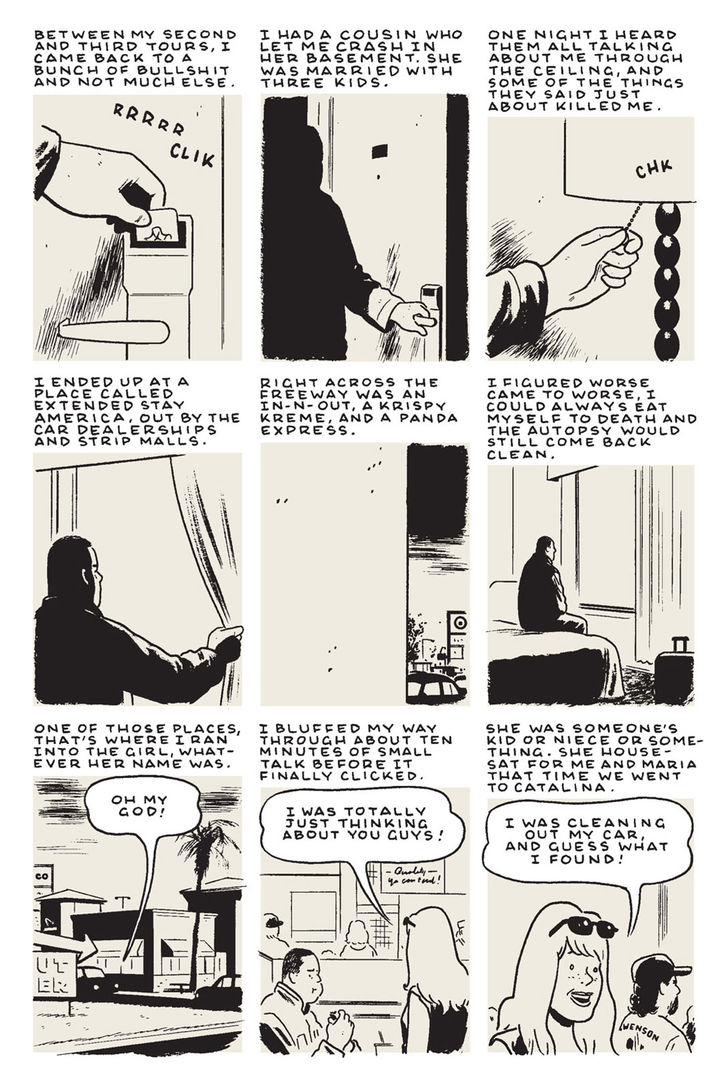 |
||||||||||||||||||||
| Tuesday, April 27, 2020 VIA Zoom! Day 1, Emil Ferris's MY FAVORITE THING IS MONSTERS--no page numbers, oddly, read to here: |
||||||||||||||||||||
| Thursday, April 29, 2020 -- Zoom! Day 2, MY FAVORITE THING IS MONSTERS--Again, the book has NO PAGE NUMBERS--so try to read/see to this page: |
||||||||||||||||||||
Tuesday,
May 4, 2020 via Zoom!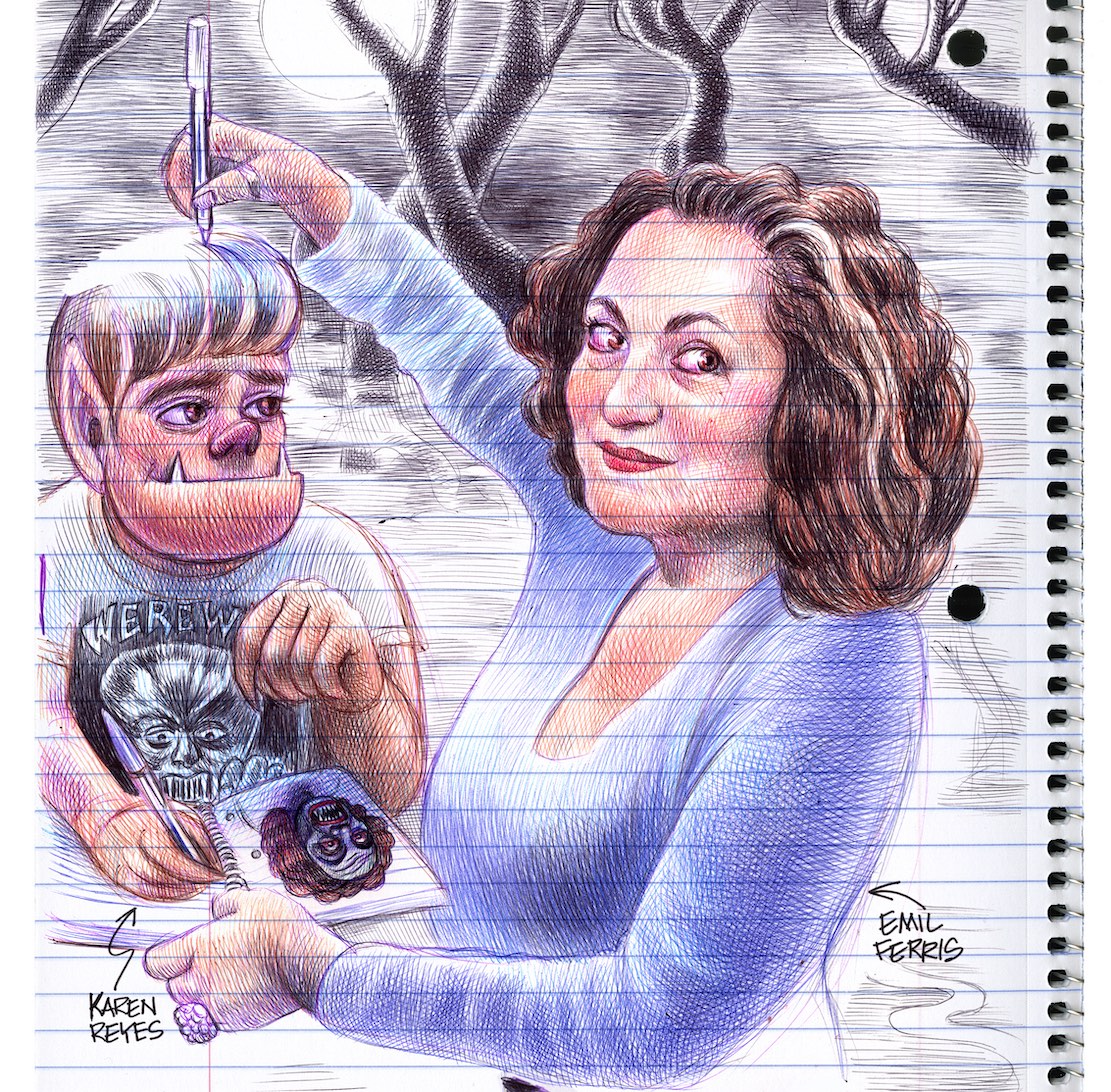 Day 3 of My Favorite Thing is Monsters--for today, finish Emil Ferris's remarkable graphic novel. We will also have, towards the end of class, a Quick Mini Review for the Final!!! Utterly optional--so if you want to leave when the review starts, that is cool as well. |
||||||||||||||||||||
|
Thursday, May 6, 2020 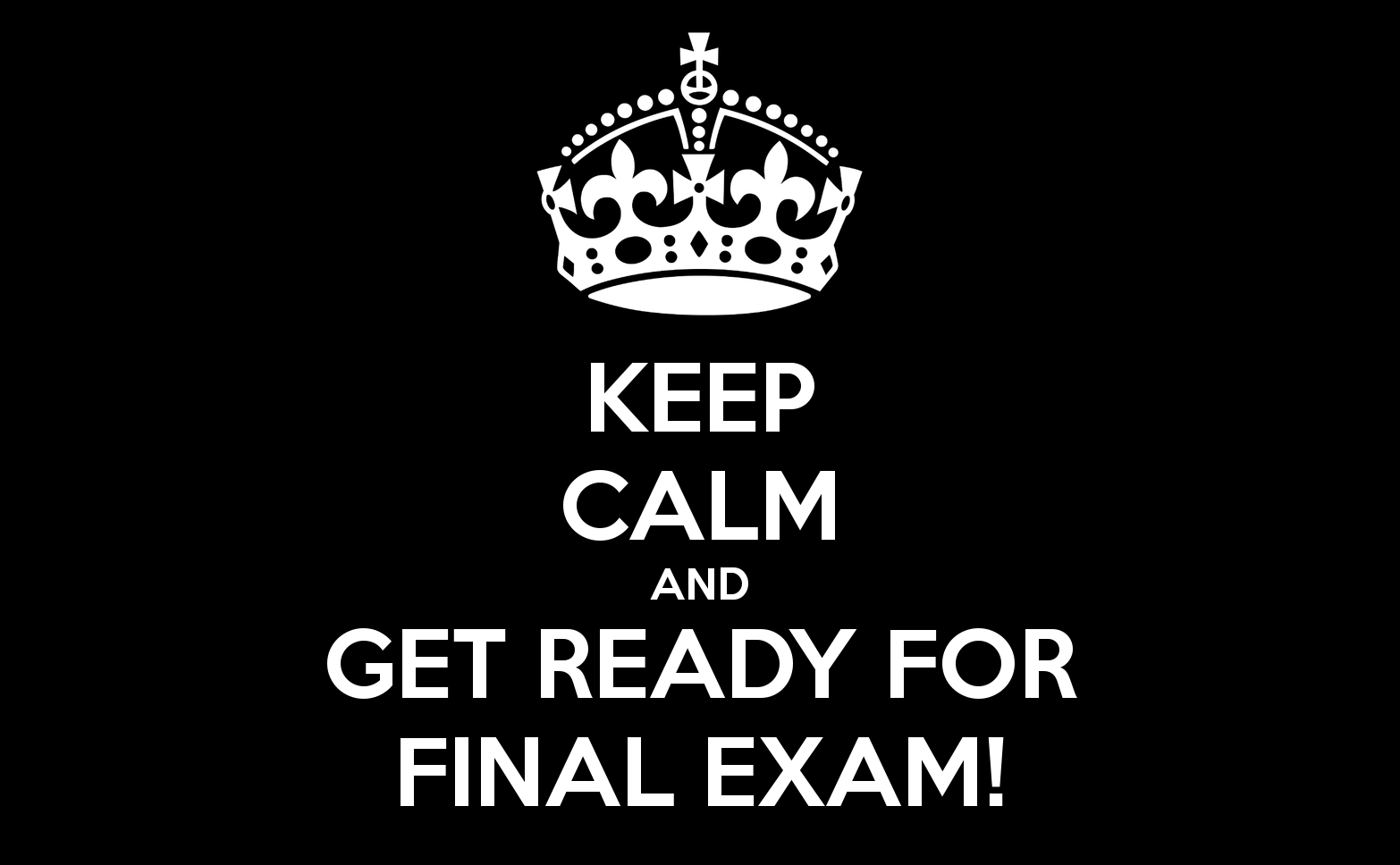
Subterranean Final
Exam -- Sign on to Zoom! at 11am
sharp--if you can, sign on at 10:55am so you
can be settled. The exam will be sent to me
via email so have an email made out to
bnericci@sdsu.edu ready to go when we begin
the exam! How exciting! We a are almost done! |
||||||||||||||||||||
|
||||||||||||||||||||
| #davidlynch
#thomaspynchon #francescawoodman #kurtvonnegut #DianeArbus + more to come ... animated gif by annaxmalina |
||||||||||||||||||||
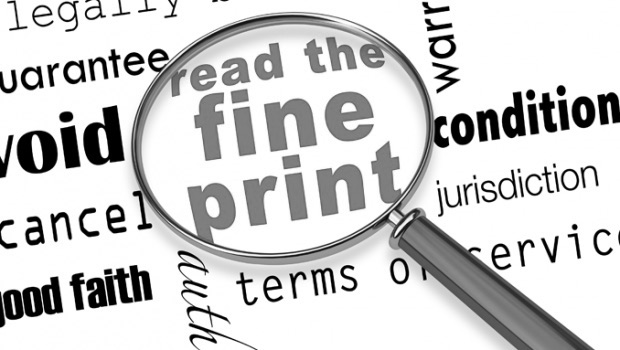 The Fine Print | SDSU POLICIES Accommodations:
Student Privacy and Intellectual Property: The Family Educational Rights and Privacy Act (FERPA) mandates the protection of student information, including contact information, grades, and graded assignments. I will use [TinyLetter.com] to communicate with you, and I will not post grades or leave graded assignments in public places. Students will be notified at the time of an assignment if copies of student work will be retained beyond the end of the semester or used as examples for future students or the wider public. Students maintain intellectual property rights to work products they create as part of this course unless they are formally notified otherwise.
Religious observances: According to the University Policy File, students should notify the instructors of affected courses of planned absences for religious observances by the end of the second week of classes
Student
email addresses: Students
are provided with an SDSU Gmail account for their
official use. This SDSU
email address
will be used for all communications. Per
university policy, students are responsible
for checking their official university email
once per day, please see Student
Official Email Address Use Policy here.
Academic
Honesty: The
University adheres to a strict policy
prohibiting cheating and plagiarism. Examples of academic
dishonesty include but are not limited to:
●
copying, in part or in whole, from
another's test or other examination; ●
obtaining copies of a test, an
examination, or other course material ●
collaborating with another or
others in work to be presented without the
permission of the instructor; ●
falsifying records, laboratory
work, or other course data; ●
submitting work previously
presented in another course, if contrary to the
rules of the course; ●
altering or interfering with
grading procedures; ●
assisting another student in any of
the above; ●
using sources verbatim or
paraphrasing without giving proper attribution
(this can include phrases, sentences, paragraphs
and/or pages of work); ●
copying and pasting work from an
online or offline source directly and calling it
your own; ●
using information you find from an
online or offline source without giving the author
credit; ●
replacing words or phrases from
another source and inserting your own words or
phrases. The
California State University system requires
instructors to report all instances of academic
misconduct to the Center for Student Rights and
Responsibilities. Academic dishonesty will result
in disciplinary review by the University and may
lead to probation, suspension, or expulsion. Instructors may also, at
their discretion, penalize student grades on any
assignment or assessment discovered to have been
produced in an academically dishonest manner.
Resources
for students: A
complete list of all academic support
services--including the Writing
Center and Math Learning
Center--is available on the Student
Affairs’ Academic
Success website. Counseling
and Psychological Services
(619-594-5220) offers confidential counseling
services by licensed therapists; you can Live Chat
with a counselor at http://go.sdsu.edu/student_affairs/cps/therapist-consultation.aspx between 4:00pm and 10:00pm, or
call San Diego Access and Crisis 24-hour Hotline
at (888) 724-7240. Sexual
violence / TItle IX
mandated reporting: As an
instructor, one of my responsibilities is to help
create a safe learning environment on our campus.
I am a mandated reporter in my role as an SDSU
employee. It is my goal that you feel able to
share information related to your life experiences
in classroom discussions, in your written work,
and in our one-on-one meetings. I will seek to
keep the information you share private to the
greatest extent possible. However, I am required
to share information regarding sexual violence on
SDSU’s campus with the Title IX coordinator,
Jessica Rentto
619-594-6017. She (or her designee) will contact
you to let you know about accommodations and
support services at SDSU and possibilities for
holding accountable the person who harmed you.
Know that you will not be forced to share
information you do not wish to disclose and your
level of involvement will be your choice. If you
do not want the Title IX Officer notified, instead
of disclosing this information to your instructor,
you can speak confidentially with the following
people on campus and in the community. They can
connect you with support services and discuss
options for pursuing an investigation. Sexual
Violence Victim Advocate 619-594-0210 or
Counseling and Psychological Services
619-594-5220, psycserv@sdsu.edu. For more information regarding
your university rights and options as a survivor
of sexual misconduct or sexual violence, please
visit titleix.sdsu.edu or sdsutalks.sdsu.edu.
Classroom
Conduct Standards: SDSU
students are expected to abide by the terms of the
Student Conduct Code in classrooms and other
instructional settings. Prohibited
conduct includes: ●
Willful, material and
substantial disruption or obstruction of a
University-related activity, or any on-campus
activity. ●
Participating in an
activity that substantially and materially
disrupts the normal operations of the University
or infringes on the rights of members of the
University community. ●
Unauthorized recording,
dissemination, or publication (including on
websites or social media) of lectures or other
course materials. ●
Conduct that threatens or
endangers the health or safety of any person
within or related to the University community,
including 1. physical abuse, threats,
intimidation, or harassment. 2.
sexual misconduct.
Medical-related
absences: Students are instructed to contact
their professor/instructor/coach in the event they
need to miss class, etc. due to an illness, injury
or emergency. All
decisions about the impact of an absence, as well
as any arrangements for making up work, rest with
the instructors. Student Health
Services (SHS) does not provide medical
excuses for short-term absences due to illness or
injury. When a medical-related absence persists
beyond five days, SHS will work with students to
provide appropriate documentation. When a student
is hospitalized or has a serious, ongoing illness
or injury, SHS will, at the student's request and
with the student’s consent, communicate with the
student's instructors via the Vice President for
Student Affairs and may communicate with the
student's Assistant Dean and/or the Student Ability
Success Center.
SDSU
Economic Crisis Response Team: If
you or a friend are experiencing food or housing
insecurity, technology concerns, or any unforeseen
financial crisis, it is easy to get help!
Visit sdsu.edu/ecrt for
more information or to submit a request for
assistance. SDSU's Economic Crisis Response
Team (ECRT) aims to bridge the gap in resources
for students experiencing immediate food, housing,
or unforeseen financial crises that impacts
student success. Using a holistic approach to
well-being, ECRT supports students through crisis
by leveraging a campus-wide collaboration that
utilizes on and off-campus partnerships and
provides direct referrals based on each student’s
unique circumstances. ECRT empowers students to
identify and access long term, sustainable
solutions in an effort to successfully graduate
from SDSU. Within 24 to 72 hours of submitting a
referral, students are contacted by the ECRT
Coordinator and are quickly connected to the
appropriate resources and services.
For students
who need assistance accessing technology for their
classes, visit our ECRT website (sdsu.edu/ecrt) to be connected with the SDSU
library's technology checkout program. The
technology checkout program is available to both
SDSU and Imperial Valley students.
|
||||||||||||||||||||
|
Statcounter
Lurking
Subterranean Visitors |
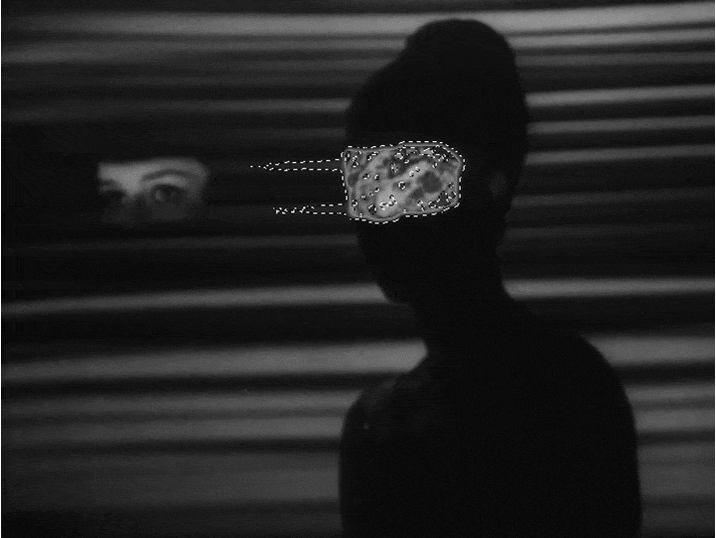

 nto the deep, into
the subterranean -- a shadowy
realm of dreams and nightmares:
literature.
Beneath the surface we will
go, probing shadows
in the dark -- finding out
that the shadow is a
mirror:
surprise!
nto the deep, into
the subterranean -- a shadowy
realm of dreams and nightmares:
literature.
Beneath the surface we will
go, probing shadows
in the dark -- finding out
that the shadow is a
mirror:
surprise!
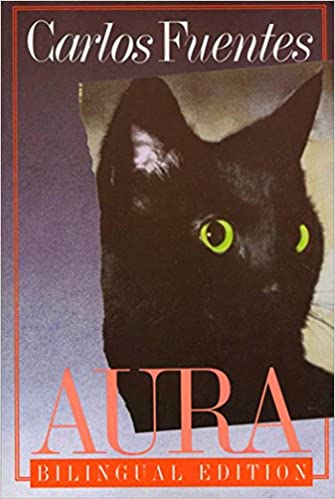

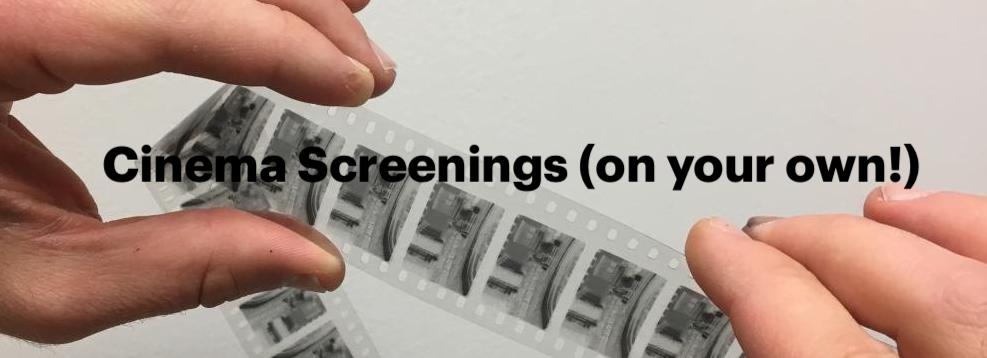

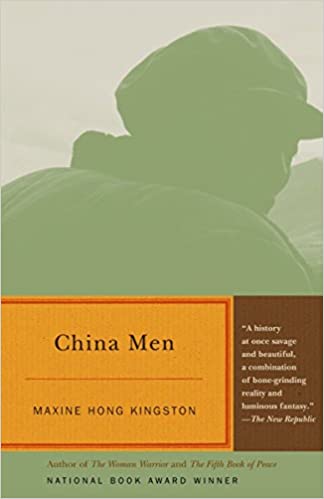

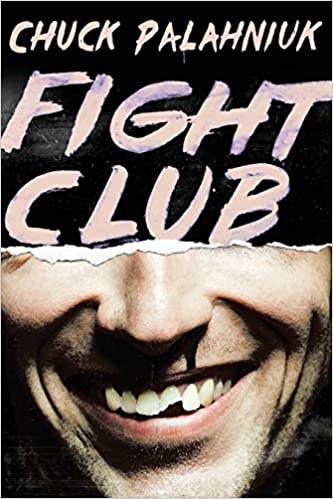
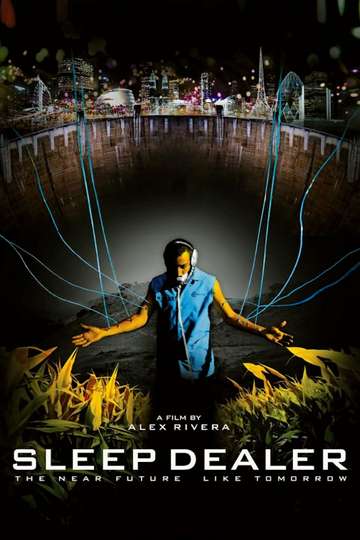

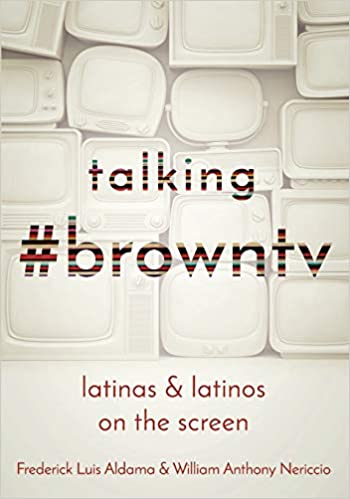
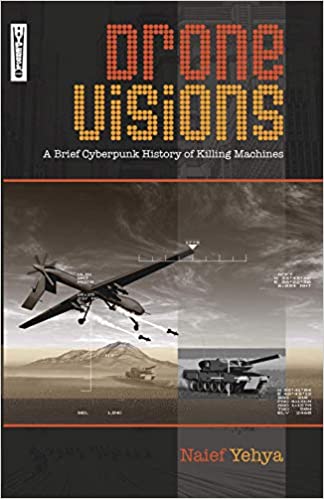
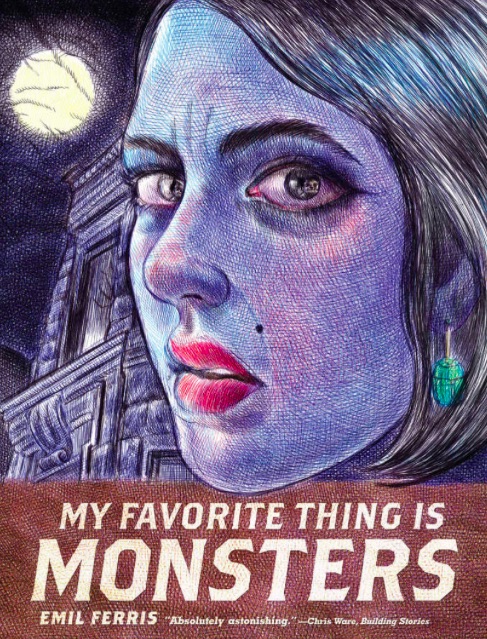
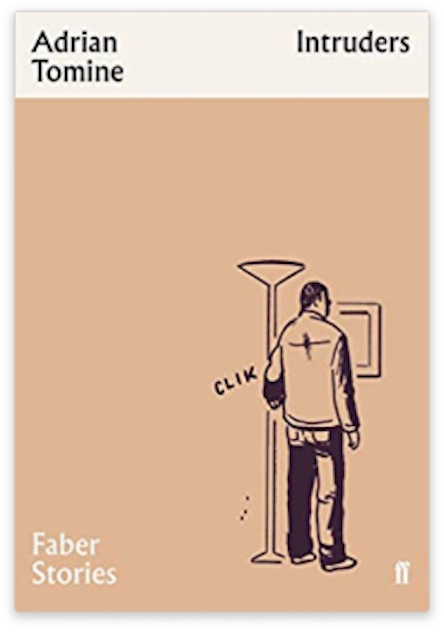
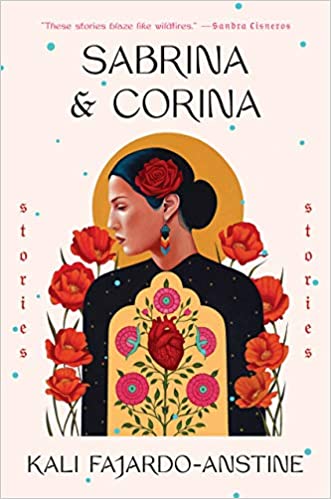
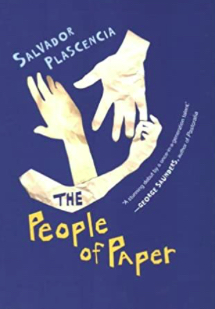
 PASSPORT RULE 1
PASSPORT RULE 1 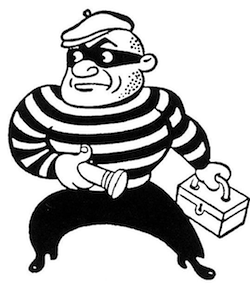
 Our main social
media site for this class, Facebook-based, is located
Our main social
media site for this class, Facebook-based, is located 
